2021-22
Annual Report
THE UNIVERSITY OF NEW MEXICO LATIN AMERICAN & IBERIAN INSTITUTE
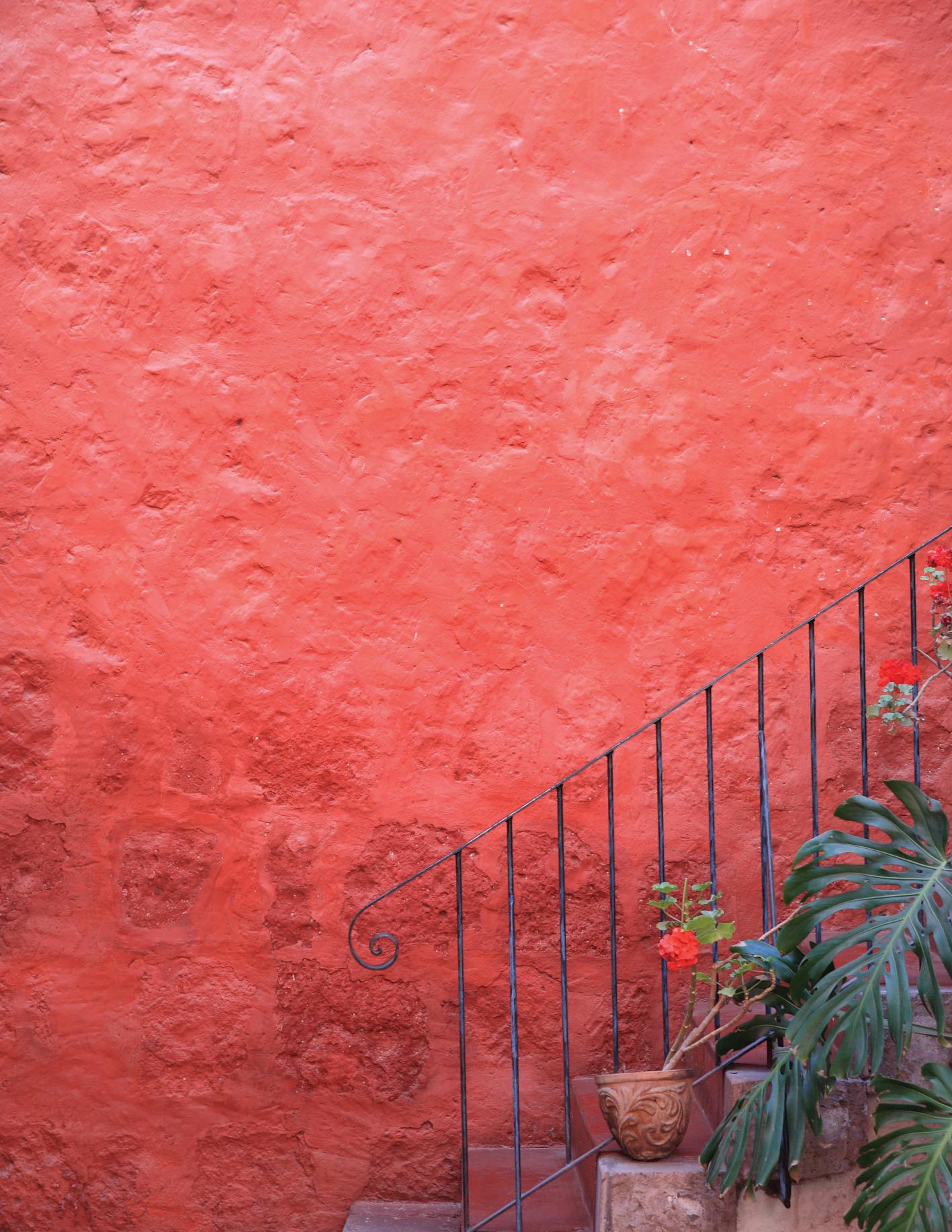



About the LAII 3
Letter from the Director 4



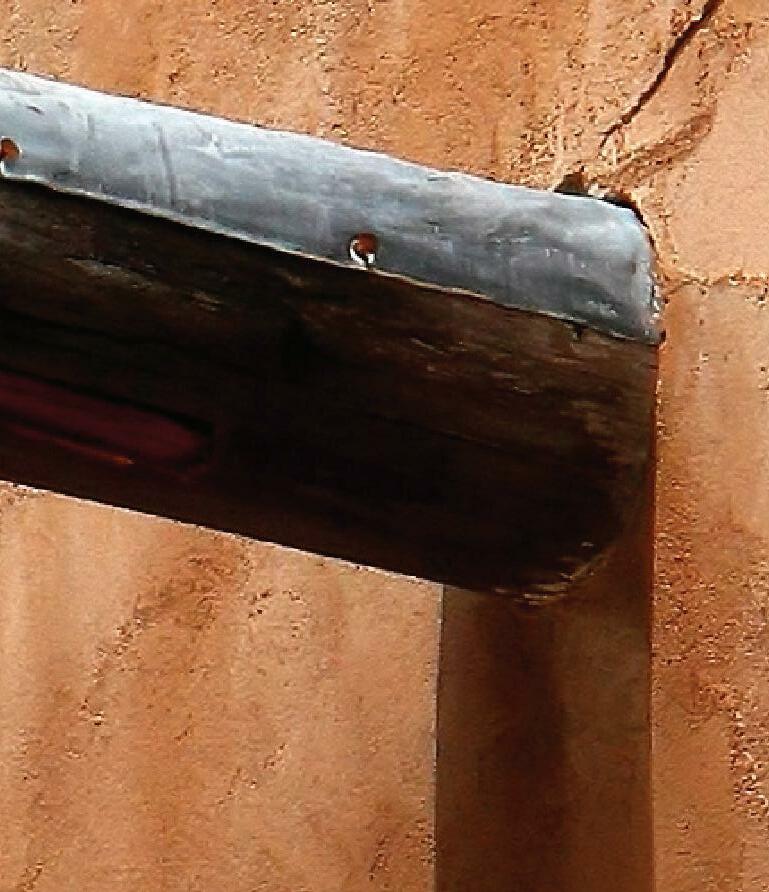




Latin American Studies at UNM 6
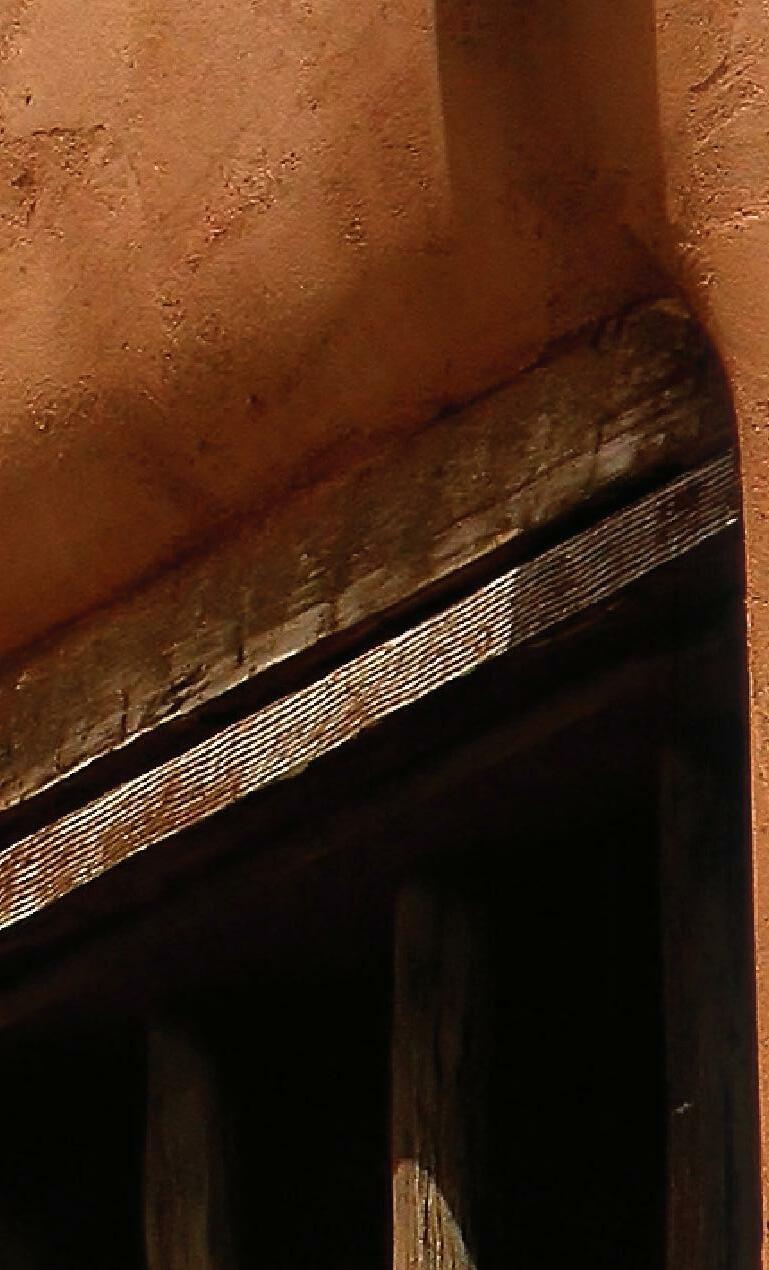


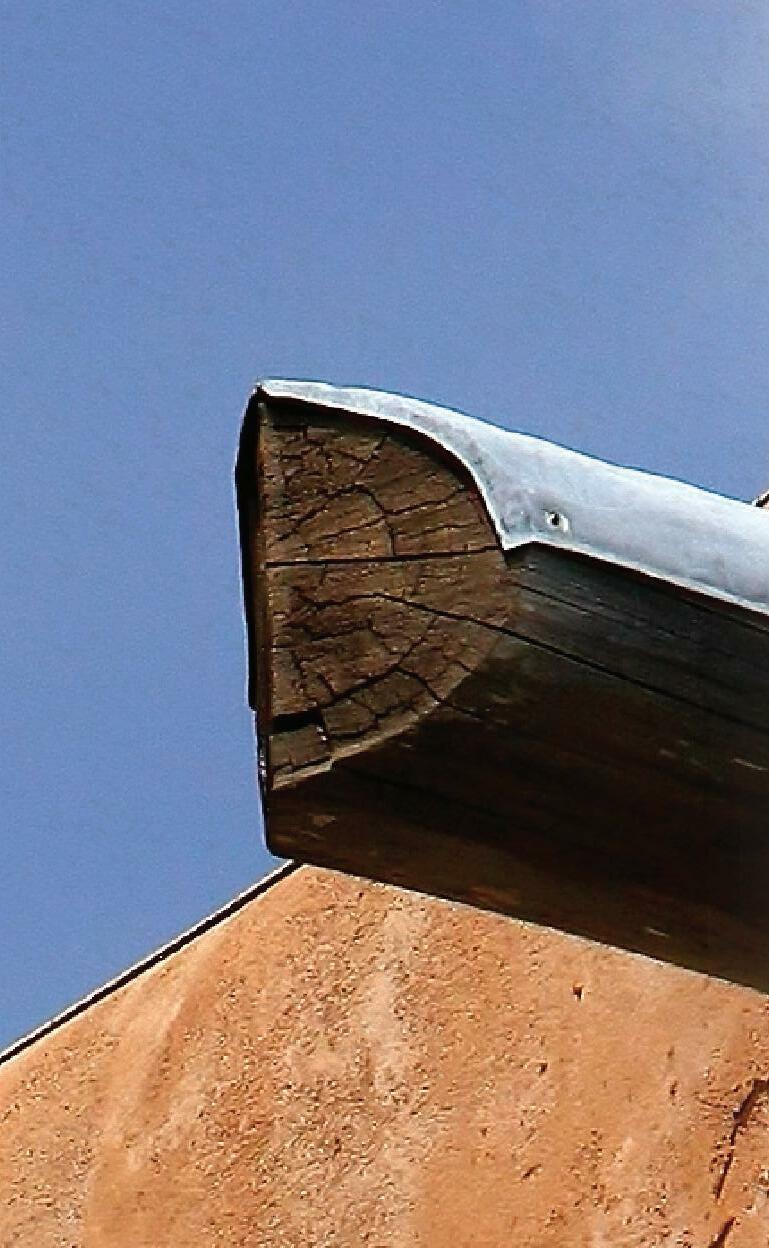

Latin American Studies at CNM 20

Student Research & Awards 23
Faculty Research & Awards 26 Outreach 28
Our People 30
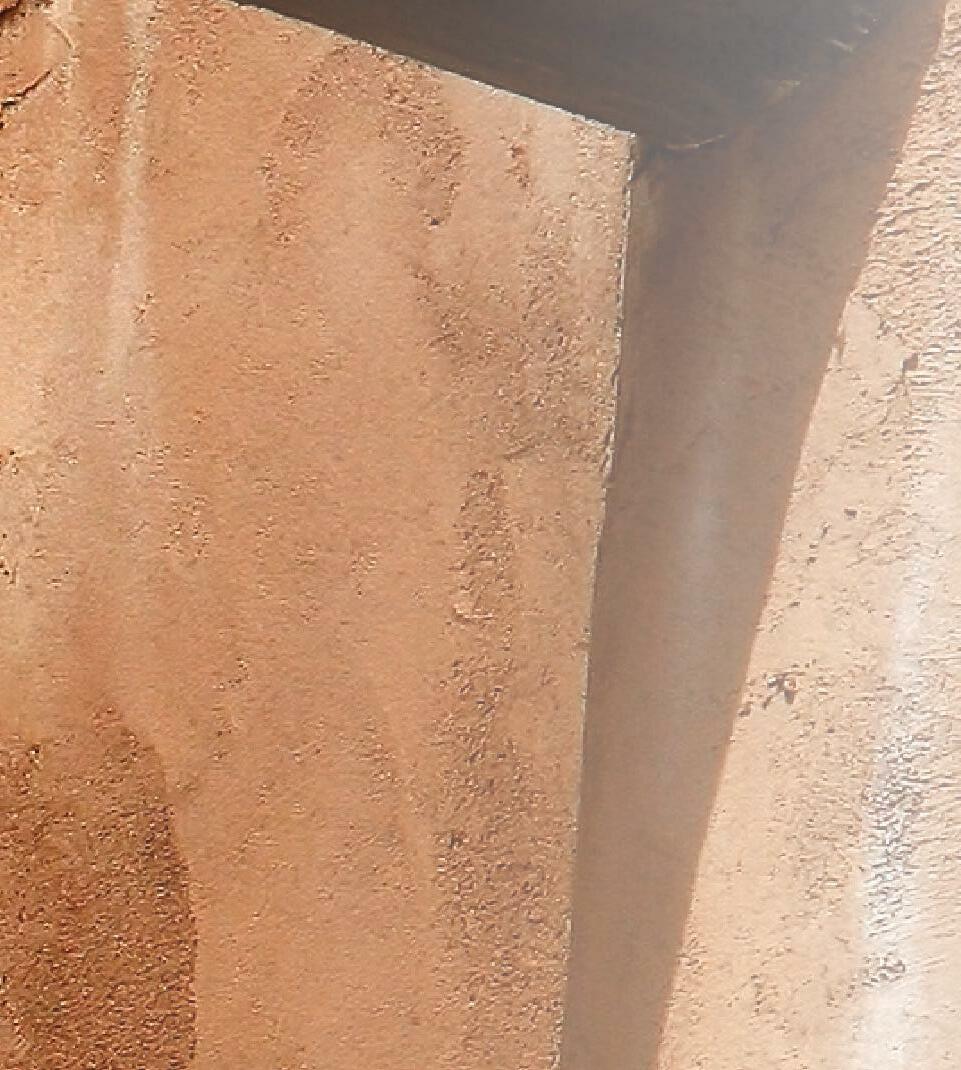

Because of the geographic location and unique cultural history of New Mexico, The University of New Mexico (UNM) has emphasized Latin American Studies since the early 1930s. In 1979, the Latin American & Iberian Institute (LAII) was founded to coordinate Latin American programs on campus. The LAII promotes and supports interdisciplinary teaching, research and meaningful public engagement to advance the production and dissemination of knowledge about Latin America and Iberia. Latin America is designated as one of seven priority areas of research for UNM and the LAII has proudly contributed to the university’s intellectual community as well as global discourse throughout its 40-year history.








The LAII offers academic degrees, supports research, and provides development opportunities for faculty. In addition to the Latin American Studies (LAS) degrees offered, the Institute supports Latin Americanists in departments and professional schools by awarding student fellowships and providing funds for faculty and curriculum development. The LAII is also committed to expanding awareness, knowledge, and understanding of Latin America and Iberia among diverse constituents through its community education programs and outreach initiatives.

THE UNIVERSITY OF NEW MEXICO HAS EMPHASIZED LATIN AMERICAN STUDIES SINCE THE 1930s.
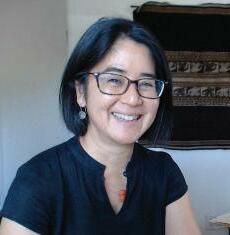


I hope you and yours are well as we approach the end of the year.
I write to share the Latin American and Iberian Institute’s 2021-2022 Annual Report. As in previous years, the content demonstrates why UNM continues to be a national leader in Latin American and Iberian studies in the US.
Much of our strength comes from the over 160 UNM faculty affiliated with the LAII who do research and/or teach about these world areas and their languages. Two dynamic new Brazilianists joined their ranks in 2021, Andreas Hernández (Sustainability Studies) and Jessica Carey Webb (Spanish and Portuguese, profile on page 9), and both have already added tremendously to Latin American studies at UNM. LAII affiliated faculty host visiting scholars and give public lectures, teach and mentor students, publish widely, and are recognized nationally and internationally for their research (see profiles of Jessica Carey-Webb, Luis Herrán Ávila, and Rosa Vallejos on pages 9, 11, and 16). They also attract and train outstanding graduate students who go on to contribute to a wide range of professions and fields, and who become the next generation of specialists in Latin America and Iberia (see profile of distinguished alumna Suzanne Schadl on page 18).
The LAII is honored to administer over $750,000 per year in support for these students. This includes funding from a US Department of Education Title VI Foreign Language and Area Studies (FLAS) grant that we were awarded in the summer of 2022. The FLAS grant will provide over $970,000 over the next four years in fellowships to graduate and undergraduate students to study less commonly taught Latin American languages and area studies. The first cohort of (very happy!) FLAS fellows is being funded in the 2022-2023 academic year, and future opportunities include summer fellowships to study languages abroad.
The LAII also provides field grants for graduate student research in Latin America, PhD fellowships, and graduate assistantships and emergency scholarships for students in the Latin American Studies program. The great majority of the funding for these awards comes from the state of New Mexico, augmented by endowments and gifts. In recent years, available funds have not gone as far due to inflation and the sharp increase in housing costs in Albuquerque. We continue to seek and apply for other sources of support for students such as the FLAS grant. If you are able, we hope you will consider a gift to benefit students studying Latin America and Iberia at UNM, through the LAII Student Field Research Grant Fund, the Latin American Studies Scholarship Fund, or the establishment of a named scholarship (see our giving page at the end of the report).
A large part of the LAII mission is outreach, and we sponsor or co-sponsor a wide range of lectures (see page 29), workshops, and campus and community events highlighting Latin American and Iberian culture such as our lecture series with UNM Press, the Festival Flamenco (organized by the National Institute of Flamenco), Cine Magnífico (organized by the Instituto Cervantes), and the world music festival, Globalquerque.
In addition to these activities, the LAII has a vibrant K-12 outreach program (see page 30) that includes professional workshops for educators on compelling and timely topics, the creation and sharing of curricular material online, and
the Vamos a Leer blog, which highlights culturally responsive children’s literature in English and Spanish. The blog and online curricular resources are widely accessed and appreciated, with over 50,000 downloads since 2019, with demand particularly high during the worst months of the pandemic. We are proud to be a source of high-quality resources for educators, parents and teachers in New Mexico and across the nation.
I’d like to close by thanking all those who supported the LAII in 2021-2022: the wonderful LAII staff and graduate and front office assistants (the hardworking faculty members of our advisory committees, LAII faculty affiliates who contributed to programming, and any and all of you who engaged with the LAII by attending LAII events in person or online (or viewed recordings on our YouTube channel) or supported our mission through your donations. Thank you, I wish you all a happy and healthy 2023, and hope to see you soon at an LAII event!
Frances Hayashida Director, Latin American & Iberian Institute Professor of Anthropology


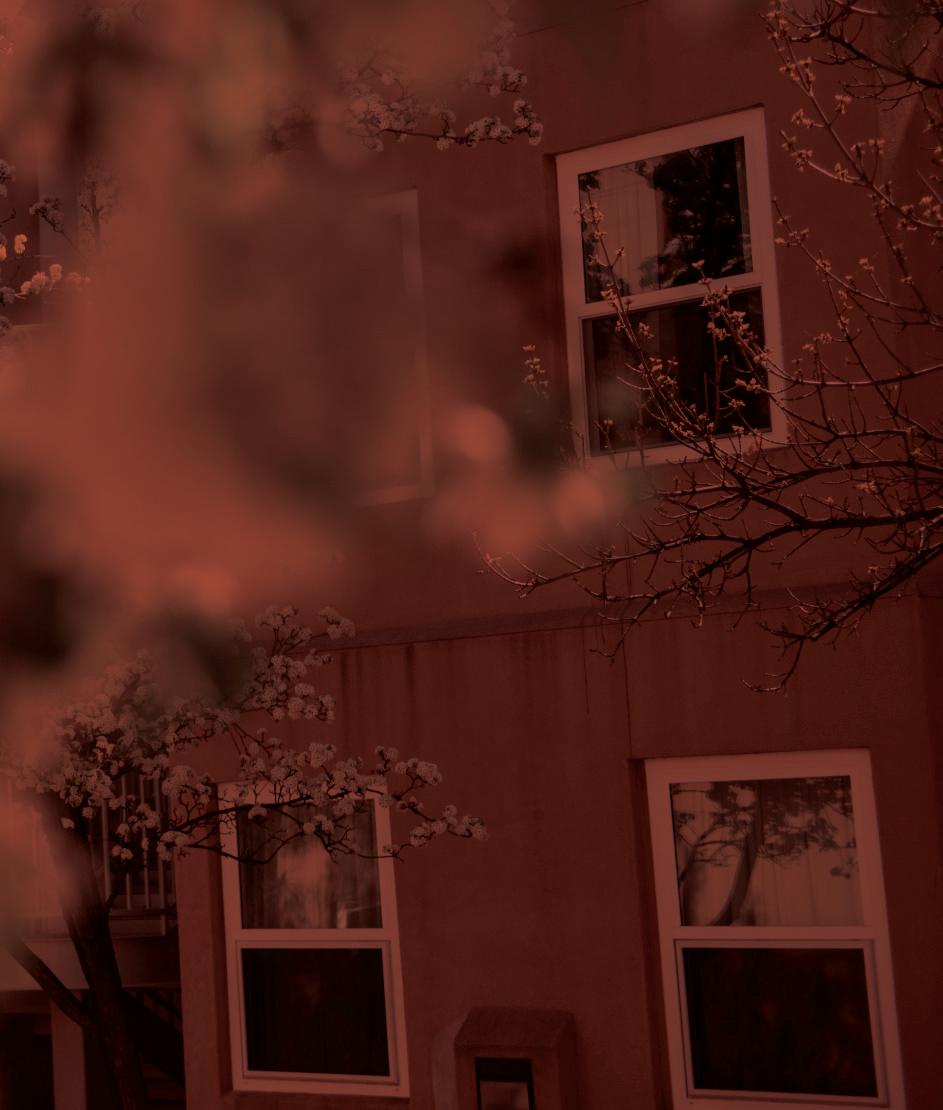






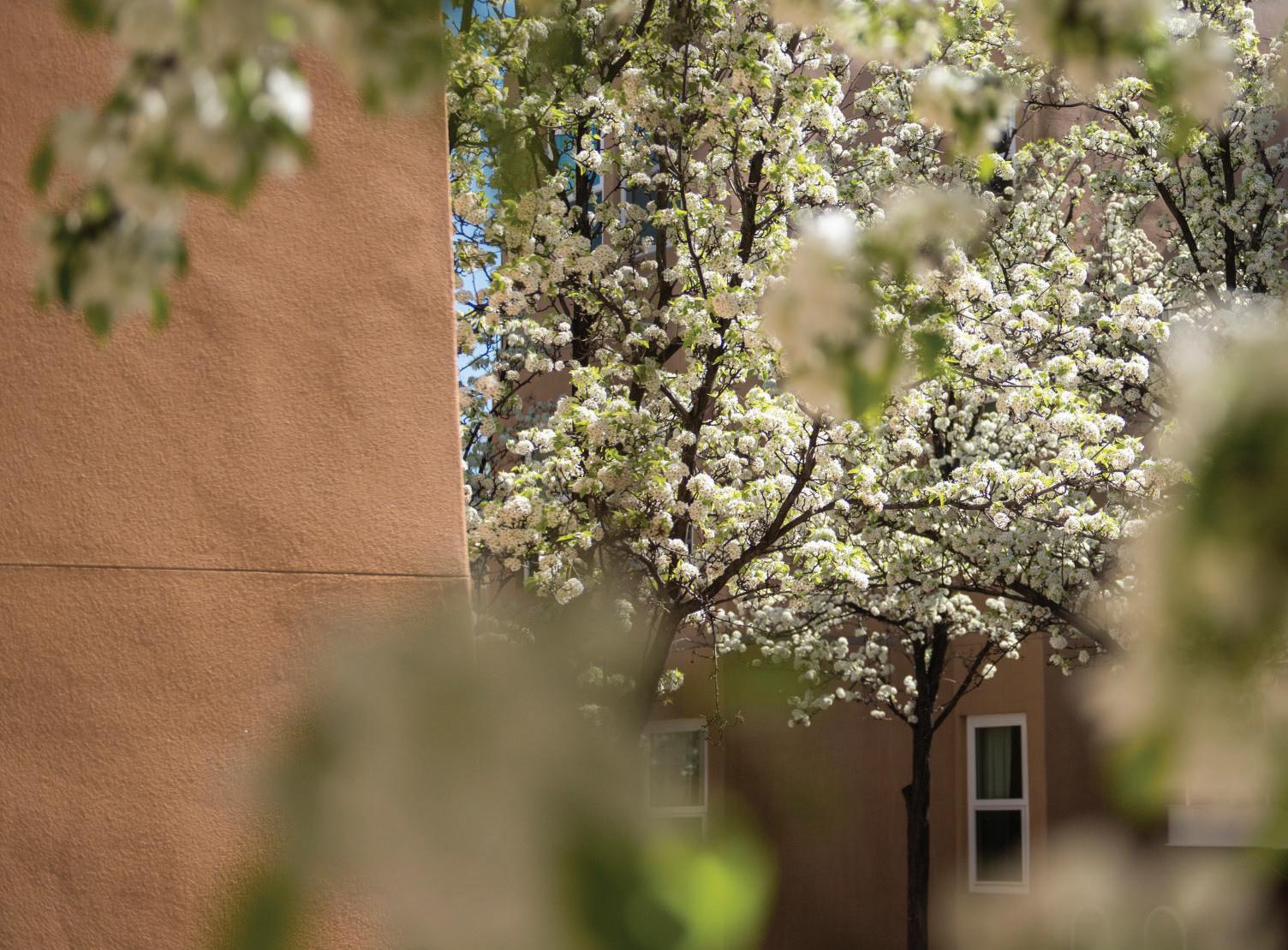


The LAII’s Latin American Studies (LAS) program is a nationally recognized interdisciplinary program that offers BA, MA, and PhD degrees conferred by the College of Arts & Sciences. In addition to the MA in Latin American Studies, we offer dual degree options with five programs (Business Administration, Community & Regional Planning, Education, Law, and Public Health) in which students simultaneously earn the MA in LAS and a professional degree. The LAS academic program builds on a tradition of excellence in Latin American Studies at UNM that dates to the 1930s.
Students within the academic program benefit from a broad distribution of Latin American expertise across disciplines and colleges, as well as from one of the premier Latin Americafocused library collections in the US. The degree programs are designed to be both rigorous and flexible, with robust foreign language study requirements and faculty advisement. Students have the opportunity to build an academic program that meets their immediate academic interests while cultivating skills necessary for future career endeavors.



Latin American Studies (LAS) courses are offered in a number of departments and programs across campus. Each semester, undergraduate and graduate students have dozens of courses to choose from that use multiple and interdisciplinary lenses to examine essential questions relevant to Latin America, the broader hemisphere, and the world. These courses allow students to study topics related to the arts, culture, history, human rights, environmental governance and resilience, markets and development, and many others. Throughout their coursework, LAS students become equipped with the skill sets that prepare them to work in education, government, the private sector, and nonprofit organizations.
With the support from a Title VI Undergraduate International Studies and Foreign Language (UISFL) provided by the US/Department of Education, the Latin American and Iberian Institute was able to award four course development grants in Latin American Studies. Topics of the developed courses include “Indigenous Languages and Their Speakers in Latin America,” “Mexican Life and Culture,” “Glotopolítica del español: lenguas, poder y desigualdad,” and “Brazilian Literature and Film in Translation.”
Here are a few highlights of courses developed with the support of the UISFL grant and offered in 2021-2022.
LTAM
The objective of this course is to analyze and reflect on the roles of indigenous languages and their speakers in the history and culture of Latin America. Students are immersed in a diverse corpus composed of oral narrations, historical documents, and material culture from digital archives and museums. The course highlights three geographical areas and the languages spoken in them. These include the Andes-Amazon: Quechua, Aymara, Matsigenka and Tikuna; Mesoamerica: Nahuatl, K’iche and Zapotec; and the Southern cone: Mapudungun, Tehuelche and Guaraní. The course explores issues of colonialism, the politics of translation processes, indigeneity, and heritage, coming to appreciate how these are implicated in the multifaced and heterogenous historical conditions of indigenous languages and speakers. A main axis of this class is to establish a comparative approach between these regions and languages. The class also recognizes decolonial approaches produced both within and outside academia by indigenous speakers.
LTAM 400/500 & PORT 416/516: “Brazilian Literature and Film



This course provides students with an in-depth understanding of various aspects of Brazilian culture through cinematic production. Although the films focus on a variety of themes, the goal is to understand the relationship between cultural production and socio-historical and political processes in Brazil. The questions/ issues that guide our discussions and readings have to do with social identities, gender and sexuality, power and exclusions and social geographies (immigrations, the environment, and rural/urban). Class discussions are in English, but the course offers various opportunities throughout the semester for Portuguese language engagement and practice.


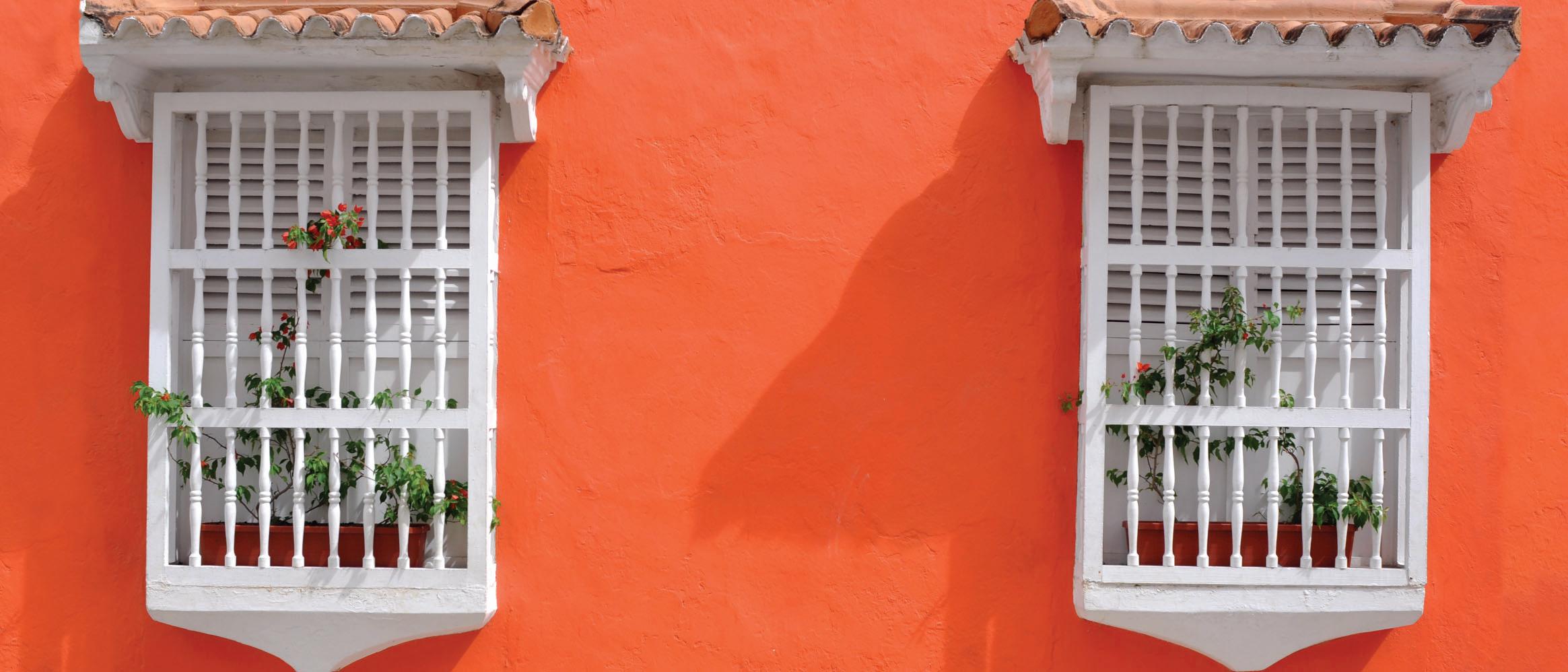
At UNM, the Department of Spanish and Portuguese plays a vital role in teaching the languages, cultures, and literatures of the Hispanic and Portuguese worlds. Their work, which plays an intrinsic role in the interdisciplinary Latin American Studies degree, approaches the languages as Spanish as a Second Language, Spanish as a Heritage Language, and Brazilian Portuguese. Their Hispanic Linguistics program was one of the first to be established in the country and is internationally ranked, and their Portuguese program dates to the 1940s. Today, the breadth of faculty expertise in the department, including many affiliated with the LAII, helps to support robust Spanish and Portuguese courses. Moreover, the Portuguese language training at UNM has been reinvigorated with two dynamic Assistant Professors hired in S&P in 2019 and 2021 (Dutra and Carey-Webb) and a Brazilianist (A. Hernández) hired in Geography and Environmental Studies in 2021.
The LAII also encourages and facilitates the learning of indigenous languages of the region, including Quechua, Yucatec Maya, and Nahuatl. The courses are taught through distance learning by indigenous instructors from the region. Quechua is taught through a partnership LAII has with Centro Tinku in Peru; Yucatec Maya is taught by LAII-affiliated faculty in Valladolid, Mexico; and Nahuatl is taught through a partnership with Zacatecas Institute for Teaching and Research in Ethnology (IDIEZ, for its initials in Spanish).
Nahuatl learners at UNM benefited from a workshop, titled: “Introduction to Nahuatl: The Language of the Aztecs,” given by Abelardo de la Cruz who visited from the University of Utah, where he serves as Nahuatl instructor in the Department of World Languages and Cultures. De la Cruz, a Ph.D. recipient in Anthropology from the University of Albany, is a Nahuatl native speaker from Chicontepec, in the north of Veracruz, Mexico. He is the coauthor of the book Citlalmachiyotl, a Colonial Drama of the Three Kings, and author of a book chapter titled “The value of custom and Christianity in the discourse of Nahua catechists from the Huasteca region.”
Jessica Carey-Webb is an Assitant Professor in the Department of Spanish and Portuguese and an incoming affiliate with LAII. Her research specializes in the historical development, environmental representation, and sustainable future of Latin America and the Amazon region. In particular, she focuses on environmental issues and the cultural representation of the Brazilian Amazon. Her current book project, Eyes on Amazonia, examines how race and gender inform structures of empire in the Amazon during a period of heightened national and international attention (the first rubber boom) from the late 19th to the early 20th century.



My research is focused on the Amazon region in Brazil in particular. Broadly, I look at the historical development of the Amazon, thinking about the ways that the region has been imagined in cultural production and also in policymaking, both historically and linking that into the present day. So it’s actually a pretty easy question in that sense of what motivates and inspires me. I mean, one, I’ve spent some time living in the Amazon region and found it just such a fascinating area, with so much going on, so many different cultures interacting and so many other outside actors intent on figuring out what to do with the region without necessarily listen listening to the people who live there. I’m motivated by trying to think of ways that we can protect. Actually, I take issue with that word -- to protect the Amazon, I mean to rather listen to the people who are living there to figure out ways to sustainably build a future for this region that’s so environmentally important and socially important as well.


In what Latin American geographies do you focus your research? How do these geographies tie into your research interests?
When I was living in the Amazon, I was in a small town outside of Belém, about four hours outside of it. And before I went there, I had such an idea in my head of what it was going to be like. You know, tall canopy trees, howling monkeys, maybe a jaguar, you know, all of the kind of flora and fauna you think of, especially as the North American when you think about the Amazon. And, you know, I got there, and it was mainly soybean fields. And seeing the way that the region had been deforested and then turned into a monoculture mainly for export really impacted the kind of issues relating to the Amazon that I was looking at. I wanted to think about areas of conflict. Actually, the geography question is kind of tough because the Amazon is huge. I mean, there are so many different geographies within it, right? This is a region that also encompasses nine different countries, millions of inhabitants, different cultures, different languages. The way that I’m thinking about the Amazon, particularly in my book project, is thinking about the areas where there’s a lot of cultural conflict -- contact zones where things are coming up against each other with an unequal power dynamic. I do look at the Amazon basin as a whole and then kind of zoom into different geographies where there are these areas of conflict. So that could be in thinking of those soybean fields that I lived amongst, right? Thinking of the dynamics of how those areas were deforested, what were the kind of pushes against that? What are the importing and exporting factors there? But overall focusing on the region and the geography of the region as a space of conflict.
In what Latin American geographies do you focus your research? How do these geographies tie into your research interests?
I was really lucky doing my dissertation and my Ph.D. work at the University of Texas in Austin. I worked with Dr. Lorraine Leu, who is just an incredible scholar of Brazil, of race and cultural studies. And she’s guided me and inspired me beyond anyone else. That’s just on the personal level. But on, you know, thinking about that question more broadly and thinking about the Amazon region and the future of the Amazon region, Marina Silva, who is the former environmental minister in Brazil is someone who really inspires me. She comes from the western Amazon and was basically self-taught and became one of the major guiding forces towards curbing deforestation in the Amazon in the pre-Bolsonaro years. And she’s still constantly speaking out and putting herself on the line to really be an environmental defender.

One of the best things you can do is to just expose yourself to as many different voices and ideas coming from the region as possible. And obviously, Latin America is an enormous region with a wealth of different voices, so that can be difficult. But just trying to get as much exposure to different ideas, to different geographies, and to different scholars in order to then decide the ways that you want to take your study. For me, that really meant finding aspects of literary and cultural studies that could become or inform more active and policy-based types of research and activism. I think it’s really just exposing yourself to as many different ideas as you can and then finding the contribution that you want to make, which can be difficult but fantastic.
Can you tell us more about your recent book and what the writing process looked like? It’s been a long process of editing, and I also was working in environmental advocacy in the interim. So that’s really shifted my perspective of things. But essentially, I look at different incursions into the Amazon. I look at North American, European, Brazilian, and Colombian explorers and journeyers who go into the Amazon, particularly during the first rubber boom. That’s from 1875 to around 1912 when it busted. But I’m also looking at narratives that then reflect on the rubber boom after the fact. The whole idea is essentially thinking about the ways that these outsiders imagine the development of the region and by development, I mean, what they thought about what different populations should be in the Amazon, how they imagine the future of the environment of the Amazon, during this period of intense research extraction. For example, in my second chapter, I look at Teddy Roosevelt who did a 1912 journey to the Amazon alongside the most famous Brazilian frontiersman Candido Rondon. And you know, Teddy is kind of like, let’s set up a big chunk of the Amazon for conservation where we can go hunt. And then let’s also have some farms or places to set up dams. And in contrast, Rondon had this different kind of idea about how he was going to set up outposts and slowly bring Indigenous peoples into being Brazilians. So again, it’s that whole idea of the conflict zone looking at the ways that these different people have interacted in this area that’s extremely desirable, especially at this point in time where people want to make some money off of the basin. So yeah, that’s kind of what the bulk of it is. And now what I’m doing is going back through and figuring out what exactly happens in the areas that these explorers were talking about and how some of these conflicts have played out. Of course, this land is still so contested, and the rhetoric, particularly now with a government like Bolsonaro’s, which is extremely hostile to diverse populations and to the environment. That type of rhetoric very much echoes what people were saying about the region over one hundred years ago. I think ultimately, it’s a story of who gets to speak on behalf of this land and these people. And you know, a lot of the narratives I’m looking at are imperial narratives. So now I’m thinking about how we can take what information there is from this time period, what written information and visual information there is and use it to reimagine the future of the region and how to change that narrative.


“Because the US and Latin America share a continent and because the history of political relations is so troubled and so complicated, I believe that teaching and researching Latin America in the United States becomes almost a civic duty. It’s a contribution in some way to improving how people see Latin America, how they perceive Latin America, how they interact with Latin America, and with the Latin Americans that are here in this country.”

 - Luis Herrán Ávila
- Luis Herrán Ávila
The Latin American & Iberian Institute was excited to honor Dr. Luis Herrán Ávila with the 2022 Latin American Studies Outstanding Faculty Award. Dr. Herrán Ávila has been an Assistant Professor of History at UNM since 2018. He earned his Ph.D. from The New School for Social Research, Politics and Historical Studies where he completed his dissertation, “Transnational Anticommunism, the Extreme Right, and the Politics of Enmity in Argentina, Columbia, and Mexico, 1954-1972”.
Dr. Herrán Ávila is a historian of the Cold War in Latin America, with an emphasis on conservative, anticommunist, and extreme right movements. After researching the comparative history of anticommunism in Mexico, Argentina, and Colombia, his current book project seeks to unveil the national and Latin American dimensions of right-wing activism in Cold War Mexico. The book project examines the history and Cold War transformations of right-wing dissidence to the Mexican post-revolutionary state and situates Mexico as a crucial hub for transnational anti-communist activism, shedding light on the various ways in which Mexican anticommunists forged links with Latin American, European, and East Asian fellow travelers. Dr. Herrán Ávila’s publications in both English and Spanish reflect a range of related research interests, such as right-wing youth; neofascism in Latin America; the history of political crime in the Americas; and the intersections between banditry and insurgency. He has also been a recipient of various scholarships and grants from Fulbright, Mexico’s National Council for Science and Technology, the New School for Social Research, and the Hoover Institution, and a contributor to the Mexican dailies Reforma and El Norte.
“Dr. Herran Avila has been an integral part of the Latin American Studies program since he joined the UNM History faculty in 2018. He regularly teaches one of the core classes for the undergraduate LAS program, “Latin American Culture & Society.” He also teaches several graduate seminars on Latin America in addition to working with individual graduate students in the master’s and Ph.D. programs. Dr. Herran Avila inspires students through his dynamic teaching and mentoring, both of which are shaped by his own academic training in Latin American Studies as an undergraduate student in Mexico.”
 - Ronda Brulotte, Former Associate Director for Academic Programs LAII
- Ronda Brulotte, Former Associate Director for Academic Programs LAII


“We are very fortunate to have Prof. Herrán Ávila at UNM and are grateful for his many contributions both to the Latin American Studies undergraduate and graduate programs and to the Latin American and Iberian Institute. Thank you, Luis!”
- Frances Hayashida, Director of LAII
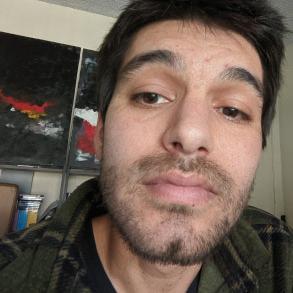



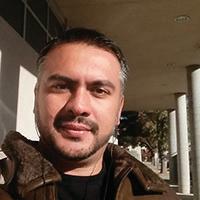



Graduate students in the UNM LAS program are diverse, drawing upon a range of academic, professional, and personal experiences related to Latin America. Each semester we welcome a new cohort, support those with degrees underway, and bid farewell to our graduating class. To learn more about each student, visit the LAII website.

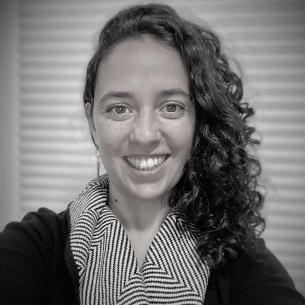
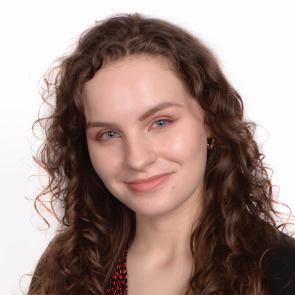

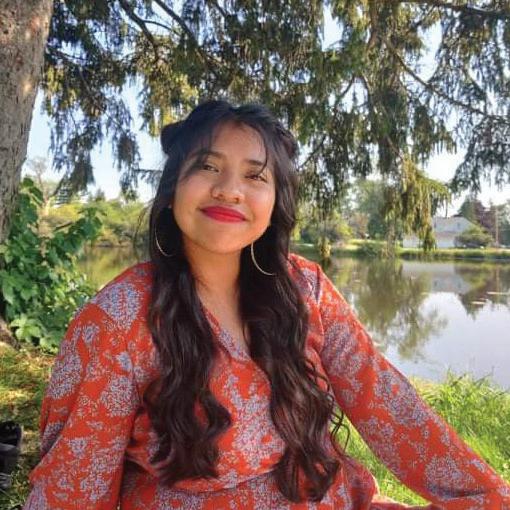


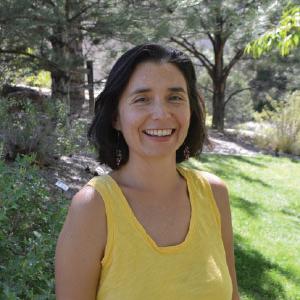




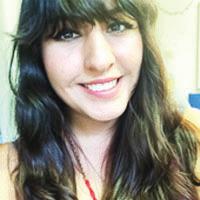

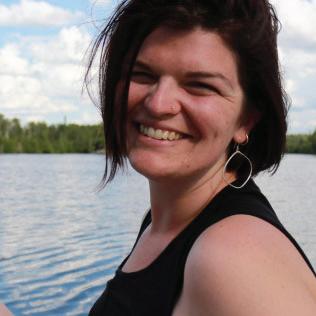

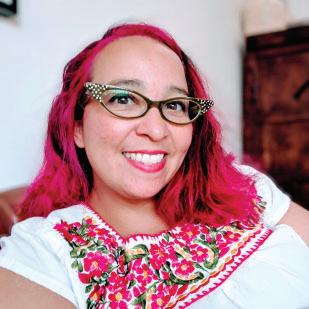



Dominic Baca (MALAS/MBA) and Alejandra Acuña Balbuena (MALAS) were the recipients of the Lashbrooke scholarships in 2021-2022 to support their graduate studies. These scholarships are offered thanks to the Janet Dorsey Lashbrooke’s endowment, which provides funding for field research, travel expenses, grants, and scholarships to students pursuing a degree in Latin American Studies at UNM. Alejandra is currently completing her degree while Dominic, who graduated in May 2022, is currently Outreach Manager for beWellnm, at the Albuquerque Hispano Chamber of Commerce.
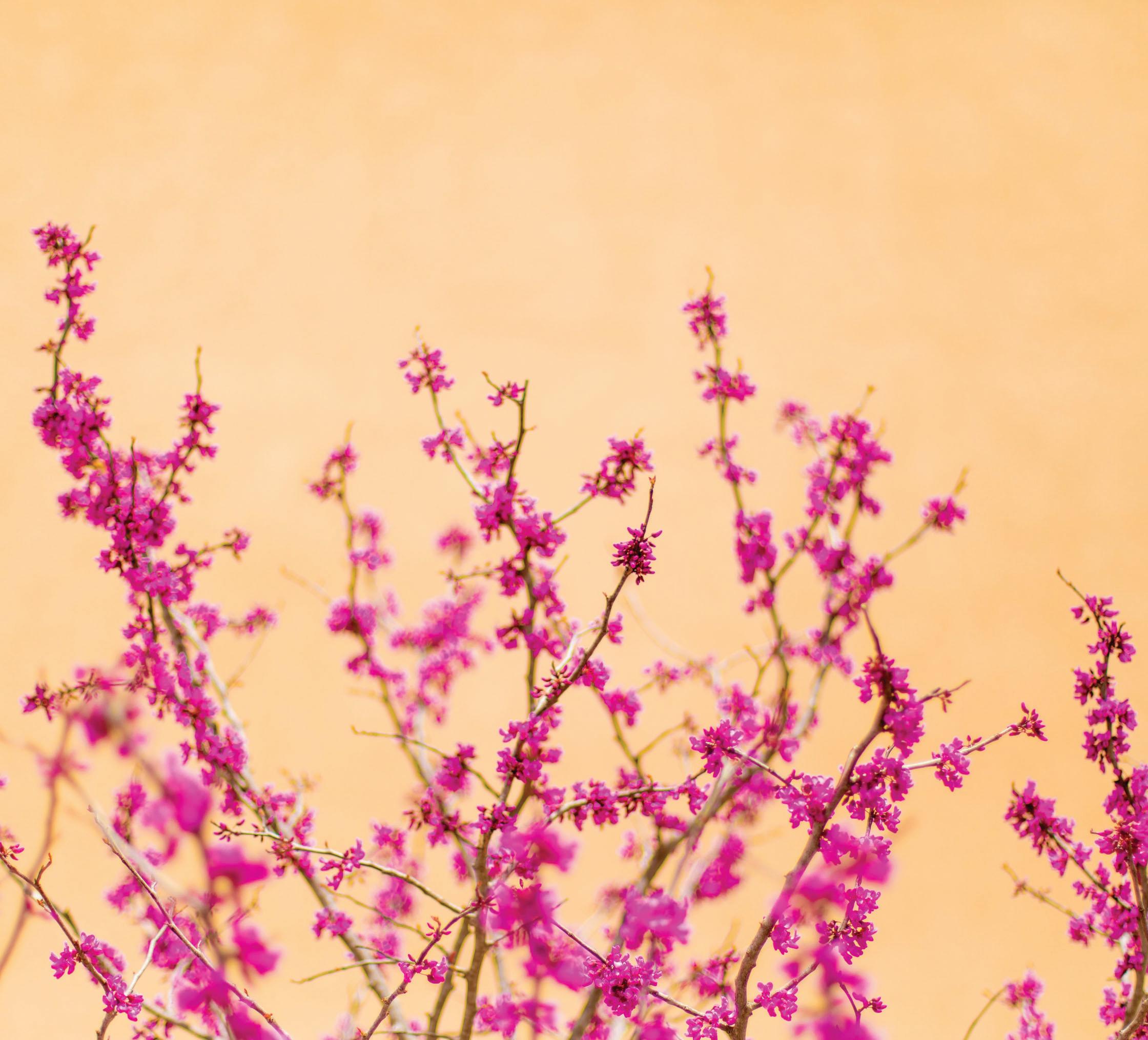




Each spring, the Latin American Studies (LAS) program holds a convocation to celebrate its graduating students. As they honor their academic career among family, friends, and faculty, these students join the ranks of UNM’s distinguished alumni and become part of UNM’s long history of dedication to Latin America.

The following individuals were recognized:


Dominic Baca
Alin Badillo-Carrillo
Joselin Castillo
Elisa Cibils
Moira Garcia
Alexandra Rivas
Joely Morales Villela
Domenica Nieto
Dr. Rosa Vallejos-Yopán is an Associate Professor in the Department of Linguistics at The University of New Mexico. Her research is centered in Amazonia, one of the most diverse areas of the world. She has conducted several projects over the last twenty years to study three typologically distinct languages. The applications of linguistic research to real-world issues are what motivate her studies, with an overarching principle being to document cultural and linguistic phenomena in order to create resources that support communities’ self-determined goals.
Earlier this year Dr. Vallejos-Yopán was awarded a Faculty Field Research Grant (FRG) by UNM’s Latin American & Iberian Institute to support her project entitled “The linguistic expression of complex events in Secoya.” Her research took place in Peru over the course of four weeks in May and June of 2022, although the project was initially planned for the summer of 2019 but had to be postponed until this year because of the COVID pandemic. “Thus,” she stated, “the goals of this trip were to reconnect with the Secoya community, make new alliances for future collaborative projects, and conduct interviews with a range of Secoya speakers to collect natural data about complex events.”
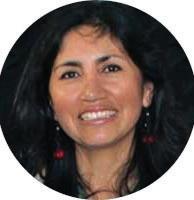



Field research itself can often be complex and preparing to conduct projects abroad requires that academic researchers address intentional approaches to their fieldwork, such as methods to be utilized for their investigations and field site selection. Dr. Vallejos-Yopán’s travels to her specific field site for this project proved to be arduous. She shared in her Field Research Grant (FRG) Report, “getting to Secoya villages is a long and complex trip. It entails: flying from Albuquerque to Lima by a commercial airline, flying from Lima to Iquitos, a city in the jungle of Peru, by a local airline, flying from Iquitos to El Estrecho, in the Peru/Colombian border, with the Peruvian Air Force, and traveling by boats through the Putumayo River for about nine hours. As some COVID restrictions remained in place in Peru, some portions of the trip took longer than expected. For example, currently the Peruvian Air Force only flies three times a week to this region, but these trips can be canceled due to any unforeseen event, including bad weather.”
Additionally, her FRG Report noted that, “this project is a key component of her ongoing work to document Secoya (ISO 639-3: sey), an endangered Tukanoan language spoken in the borders of Peru, Ecuador and Colombia. Taking advantage of a well-established collaborative relationship with the community, the goal of this project is to produce a comprehensive account of serial verb constructions. Serial verbs constructions are sequences of verbs that encode complex scenes conceptualized as single events.”
One intriguing method Dr. Vallejos-Yopán described was “using visual stimuli; I conducted semi-structured interviews using two types of visual stimuli designed to elicit the relevant linguistic structures. The first stimuli is a 4-minute video portraying fish eating each other. The speakers described the video as they saw it. This stimulus focuses on the correlations between the role of participants (the fish chasing versus the chased one, the one eating versus the one being eaten) and the linguistic expressions employed to describe those scenes. The second stimulus consists of a series of 77 short video clips. These videos portray people moving through different places. These videos elicit the linguistic expression of path, direction, and manner of movement.”
“By providing more typologically varied data and analyses, my goal in this line of research is to contribute to advance our understanding of the role of discourse context and social dynamics on how speakers phrase their utterances, and on the varied ways that grammar can emerge from use,” she states on her personal website. There, Dr. Vallejos-Yopán also reminds us, “I (do) not wish to be a documenter solely in search of “exotic” patterns; I prefer to build strong, long-


term relationships with speech communities, engaging them in the collaborative effort to document their language, and supporting language revitalization efforts.”

Concluding her FRG Report, Dr. Vallejos-Yopán indicates that “The objectives of the trip were accomplished. Concrete results of the activities...are the following: (i) A corpus of new data of Secoya with a focus on the description of complex events. (ii) An important number of lexical entries with detailed descriptions (iii) A spreadsheet containing rich and detailed metadata. (iv) The data collected with the videos is now organized and ready for the next step of my project: transcription and analysis. Building a corpus of semi structured data collected with visual stimuli is particularly important for understudied languages. This methodology has proven crucial for understanding complex phenomena that are difficult if not impossible to elicit via narratives or conversation. This corpus will provide direct evidence of whether certain phenomena occur in Secoya settings or more generally in the Amazon region. This corpus will also be important for training students in linguistic analysis. It will enhance several classes that I teach at UNM, including Morphosyntax, Language Documentation, and Native American Languages. I thank the LAII for supporting my project.”


Suzanne Schadl graduted with a PhD in Latin American Studies from The University of New Mexico in 2002. She currently serves as Chief of the Latin American, Caribbean, and European Division at the United States Library of Congress.
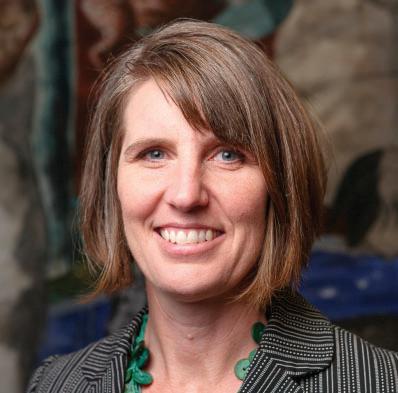
My experience in the Latin American Studies program at The University of New Mexico was kind of life changing in a lot of ways. I moved within that program from an interest in Mexico when I started and what I thought was an interest in political studies, but may have been more of an interest in just political events at the time. That turned into a pretty strong focus on Brazil and on Portuguese. In my experience, just because of the way the US. Government identifies what they consider to be less commonly taught languages, of which Portuguese is one, I found myself to be really fortunate in the program in terms of getting additional support. And once out of that program, the focus on Latin America with the inclusion of Brazil and the inclusion of the Portuguese language I felt really catapulted me into positions that enabled me to move farther and farther.
There were professors in nearly every social sciences and humanities program who had a research focus on Latin America, which is a really wonderful thing to experience as a graduate student. So I do feel like that really gave me a strong basis in interdisciplinarity, which, in my experience, has been essential for success.





How has your experience at UNM informed and influenced your current career?
I would say the coursework and in addition to the opportunities to work for the LAII and to work for the library at the university. Both of those professional experiences blended with the educational training have meant everything to the work that I’ve done as a professional. So I had the opportunity when I graduated with my PhD to work in the field of history at a small college that seemed to appreciate the fact that I had some background in history and some background in foreign language and literature. And I had an opportunity to apply directly the work that I had done in the classroom to teaching in the classroom. Part of my experience as a graduate student, particularly defending my dissertation, is something that I will never forget.
What advice do you have for current and potential LAS students?
I think my advice for current students and potential students, and any student really is to keep your mind open, keep your options open and take opportunities where they present themselves. Because you never know when an opportunity that you have is going to translate into something that is really advantageous for you. And I think sometimes as you advance in graduate school, we’re taught to narrow our focus. And I would just say, as you’re narrowing a focus, which is productive in getting the kind of work done that you need to get done, think about those sort of core pillars that are still engaged there and give yourself room to move around those pillars in your experience because it’s more than the topic you decide to address in your focus and it’s about how that topic sort of engages with a lot of other things that are sort of working around that pillar. And the ability for me, the ability to sort of separate those things out and have a focus but think more broadly within that focus around sort of core ideas has been life changing. It’s made it easier for me to sort of move between different kinds of careers, but in a way that is true to my curiosity, my academic curiosity, and the experience that curiosity has given me.


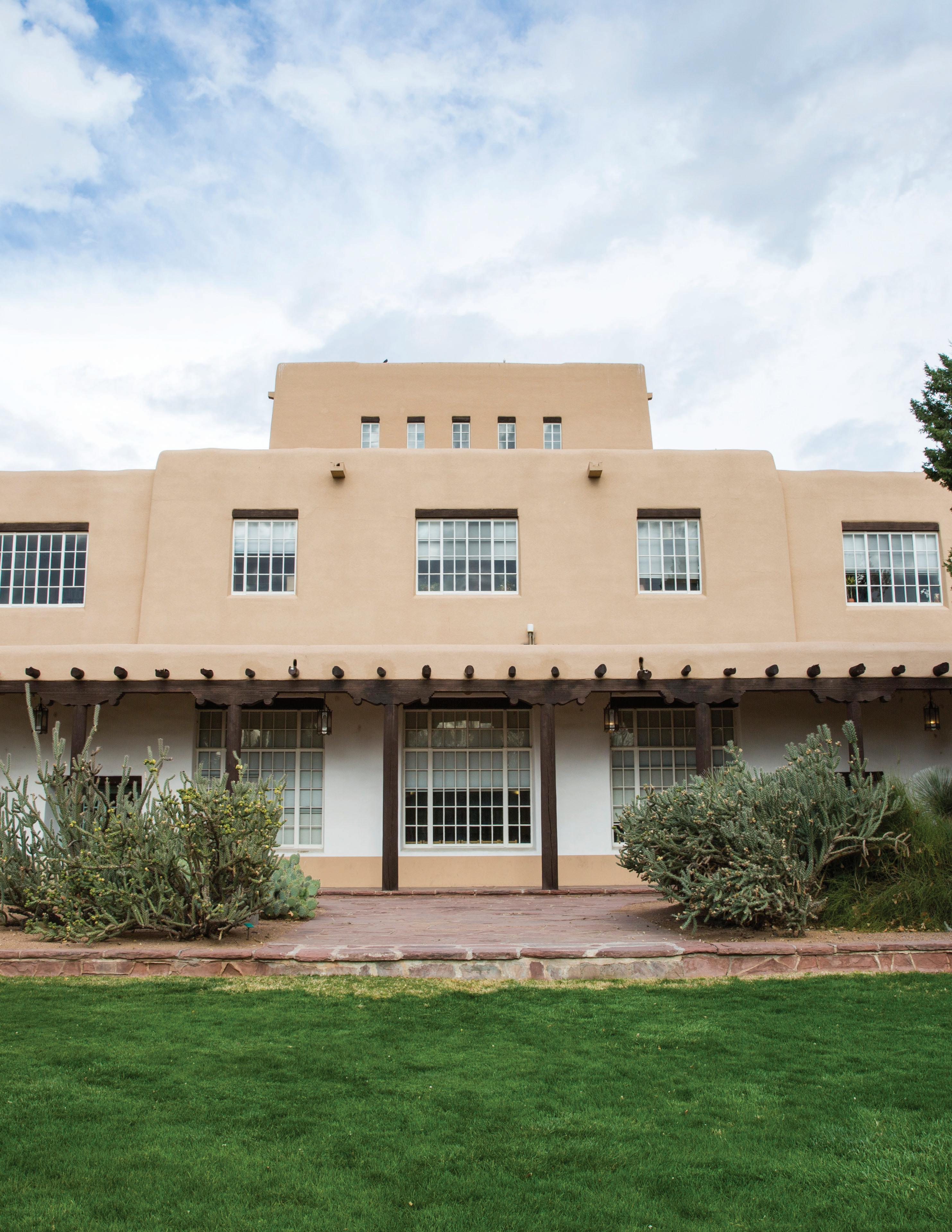
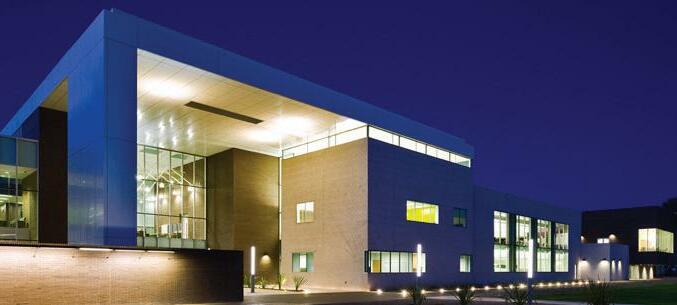


The LAII started a partnership with Central New Mexico Community College (CNM) in 2014 to strengthen the relationship and leverage resources between the UNM and CNM Latin American Studies programs. Housed within the CNM School of Communication, Humanities & Social Sciences (CHSS), the LAS program provides students with an interdisciplinary foundation for understanding the Latin American region through cultural anthropology, history, geography, language, and literature, among other disciplines. Students gain language skills and area competencies valuable in business, public service, and/or further training.
CNM students who seek to continue their Latin American Studies at UNM receive coordinated advisement from staff in each program, largely supported by an Andrew W. Mellon Foundation grant (“NM Humanities Now!”) awarded to UNM and CNM in 2019. During the 2021-2022 academic year, LAII worked closely with Dr. Brandon Morgan, who serves as the chairperson of Latin American Studies, as well as History, Cultural Studies, Anthropology, Political Science, and Economics, and Dr. Jessica Craig, who is a faculty member is the Anthropology Department.
The Undergraduate International Studies and Foreign Language (UISFL) grant has allowed us to strengthen our collaborations with CNM. During the 2021-2022 academic year, UISFL funds were used to support the professional development of two CNM professors in the fields of History and Sociology who attended the Rocky Mountain Council on Latin American Studies conference in Las Cruces, NM, on April 6-9, 2022. Three general education courses (ANTH 1155: “Linguistic Anthropology,” HIST 1120: “US History II,” and GEOG 1110: “Intro to Physical Geography”) were enhanced to include 25% of Latin American content.
We continued to organize and co-sponsor events that promote careers in areas of national need and international service among CNM and UNM students. These career events featured UNM alumni and people working with the US/ Department of State, Peace Corps, NGOs, and the international business sector. Topics of such events included the following: “Peace Corps: How to Apply, What to Expect, and How the Experience Can Lead to Future Success” (October 2021), “Working at the U.S. Department of State: The Foreign Service and Other Opportunities” (November 2021), “The Path to an International Non-Profit Career” (January 2022), “Working in International Business in New Mexico: Breaking into the Sector, What Opportunities Exist and What Does Career Growth Look?” (March 2022), “International Opportunities after UNM” (March 2022), and “Working with Refugees” (April 2022).
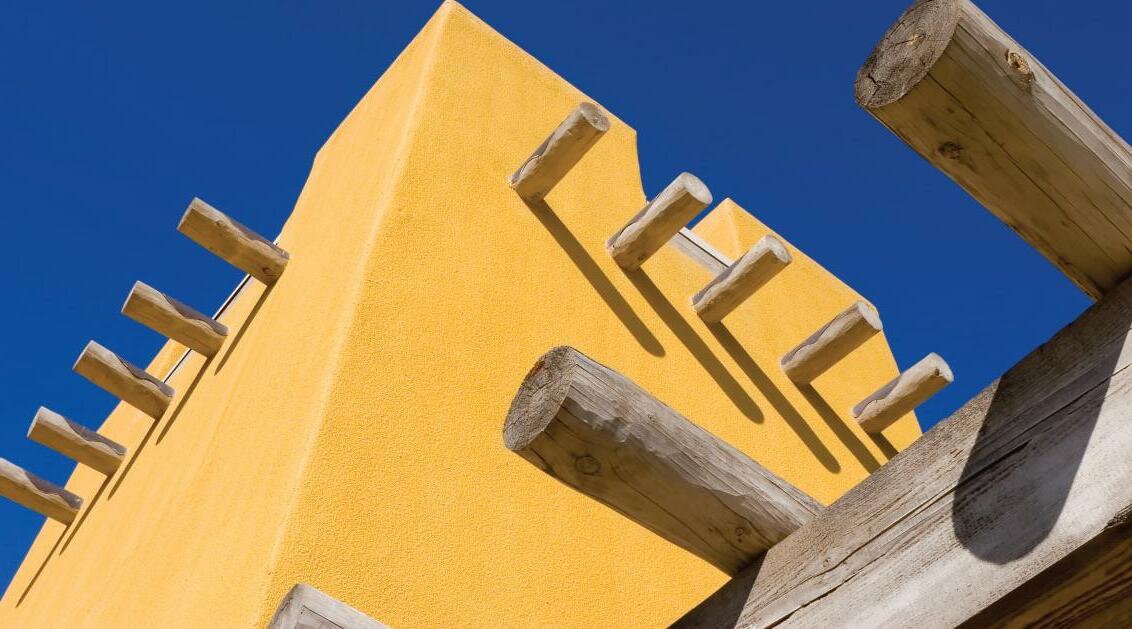
As part of the effort to bridge the programs at each campus, the LAII regularly coordinates the CNM-UNM LAS Speaker Series, in collaboration with the Humanities Now! Mellon project. As part of the effort to bridge the programs at each campus, the LAII regularly coordinates the CNM-UNM LAS Speaker Series, in collaboration with the Humanities Now! Mellon project. The series features faculty and graduate students from UNM who are invited to present on their research and experiences as Latin Americanist scholars. In 2021-2022, the following speakers spoke to the CNM community:
• Ronda Brulotte, LAS Director and Associate Professor, Geography & Environmental Studies, “Oaxacan Mezcal in the Global Craft Economy”
• Beau Murphy, Ph.D. candidate, Anthropology, “Architectural Layout and Inka Imperial Tactics in Northern Chile (AD 1400-1532)”
• Laura Belmonte, Assistant Professor, Chicana and Chicano Studies, “Representations of Resistance to StateSanctioned Violence at the U.S.-Mexico Borderlands in Literature, Art, and Film”


• Alejandra Acuña Balbuena, MALAS student, “Research in Latin America During the Pandemic: How to Accept and Adapt to Changing Circumstances”
• Joselin Castillo, MALAS student, “Central American Women in the Workforce”



With the generous support of an Undergraduate International Studies and Foreign Language grant (UISFL) in partnership with the LAII, CNM Instructors Jessica Craig and Brandon Morgan traveled to Mexico City to investigate the logistics for a future Study Abroad program for CNM students. They were there from July 5 through 12, and they visited several sites with deep historic, archaeological, and cultural significance.
The partnership with the LAII supported CNM’s first Latin American Studies program abroad in May 2018 when Craig and Morgan led 10 students to Antigua, Guatemala. They are preparing to repeat that program in 2023 and plan to launch the first Mexico City trip with students in 2024. The summer trip to Mexico City will be invaluable for planning the 2024 Study Abroad program.
The goal of this trip was to investigate a diverse range of potential activities in and around Mexico City such that Craig and Morgan could build an enriching and robust curriculum for the study abroad experience. They explored a number of museums, including the National Museum of Anthropology, the Monument to the Revolution, the National History Museum at Chapultepec Castle, and the Axolotl Museum. They experienced the rich prehistory of Mexico City by visiting the ruins at Teotihuacan, the Templo Mayor, and Tlatelolco. They visited the Instituto Mora to investigate potential spaces where they could provide lectures and other foundational content to the students on the trip. They also simply walked the city, exploring markets, parks, and neighborhoods where the group could stay.
As this program is geared toward CNM’s nontraditional student population, it is slated for a period of 9-10 days. Craig and Morgan considered the best ways to facilitate an immersive experience in a short timeframe. Based on the summer trip to Mexico City, the theme for the 2024 Study Abroad will be “Latin America’s Urban Spaces.” Both Craig and Morgan are looking forward to continuing the planning for this trip and to undertaking another program in Antigua in the interim.



The LAII stimulates Latin American research and scholarship by supporting students within the Latin American Studies program and from affiliated departments across campus. Funding may take the form of fellowships or scholarship for field research, advanced doctoral studies, or professional development at conferences.






Students at both undergraduate and graduate levels benefit from this interdisciplinary, cross-campus support.
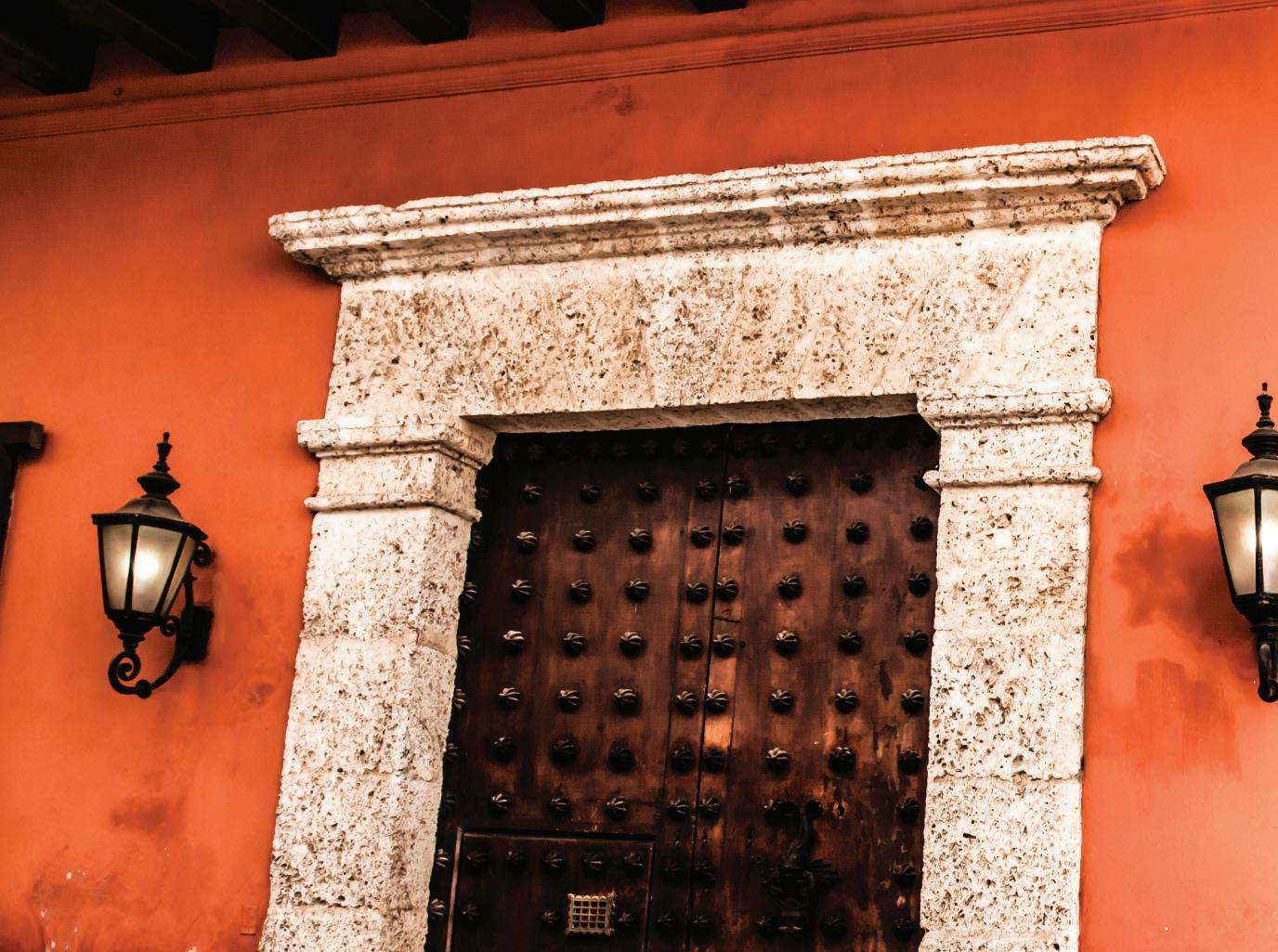
Each spring the LAII awards Field Research Grants (FRGs) to graduate students across campus who pursue research in Latin America.
FRGs provide graduate students an opportunity to acquire a comprehensive knowledge of Latin American languages, terrain, and cultures; to become familiar with information sources relevant to their studies; to conduct pilot studies and preliminary investigations that will inform their thesis or dissertation proposals; and to develop contacts with scholars and institutions in their fields of study.
M EGHANN C HAVEZ

History | Beauty and the Market: : Beauty Salons, Neoliberalism, and Female Political Action in Cold War Chile
C HRISTINA L ORENZATTOAnthropology | What Kind of People are Plants and Why Are They Important Interlocutors?” Personhood and Well-Being Among the Shipibo-Konibo of Peru
M ATEUS M ELO DOS S ANTOSHistory | Sounds Good: A Rhythmic History of Brega
I VONNE R AMÍREZCommunication & Journalism | Roller Derby in Mexico as a Form of Social and Political Resistance
L ETICIA R INALDI S OUZASpanish & Portuguese | Aging and Learning: Community-engagement and Self-efficancy in L2 Teaching to Elderly Students
F ELIPE R OJAS V ILCHESEarth and Planetary Sciences | Water vapor and volcanic species concentration on volcanic plumes by using a novel thermal infrared camera and drone based multiGAS
W HITNEY W AGNERLatin American Studies | Cautividad: De/constructing Notions of Race and Ethnicity in Argentina, 1776–1852
LAII PhD Fellowships are highly competitive awards given to doctoral students across campus to support Latin Americarelated dissertation research and writing. The following students were awarded fellowships in spring 2022 or earlier for the 2022-2023 academic year.
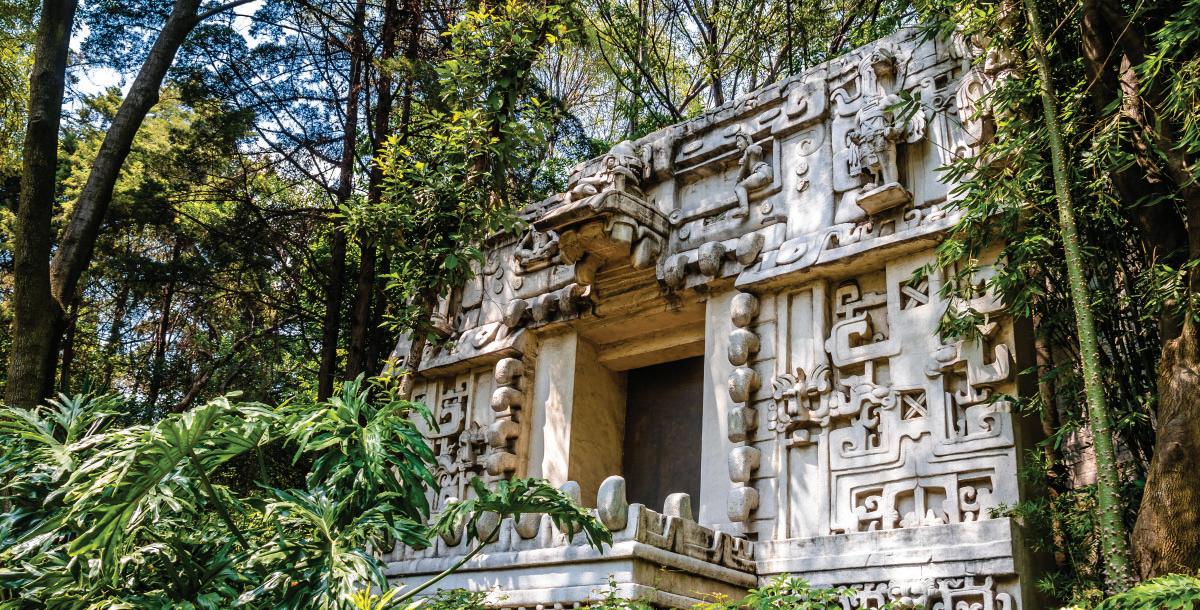
• Josue Aciego | Anthropology | Are They Indians?”: Indigenous Erasure and Resilience in Western El Salvador
• Caitlin Ainsworth | Anthropology | Bird Management at the Margins: A Case Study from Paquimé, Chihuahua, Mexico
• Elisabeth Baker | Spanish & Portuguese | Spanish-speaking children’s overregularization of irregular verbal morphology: The cases of Spanish second person singular preterit and irregular past participles
• Carter Barnwell | History | War of Position: The Battle for the Spanish Public Sphere, 1931-1939
• Daniel Clayton | Economics | Return Migration and Inequality in Mexico
• Valerio Di Fonzo | Anthropology | Examining the Practices of Eco-theology: A Study of Catholic Environmental Ethics in the Peruvian Amazon
• Jens Van Gysel | Linguistics | A Grammar of Sanapaná (Enlhet-Enenlhet) with Special Attention to Variation
• Daven Hobbs | Linguistics | Processes of Grammatical Simplification in the Development of Nheengatu

• Edrea Mendoza | History | Planificar es cuestión de querer”: Sex Education, Family Planning, and Women’s Reproductive Health in Cold War Mexico


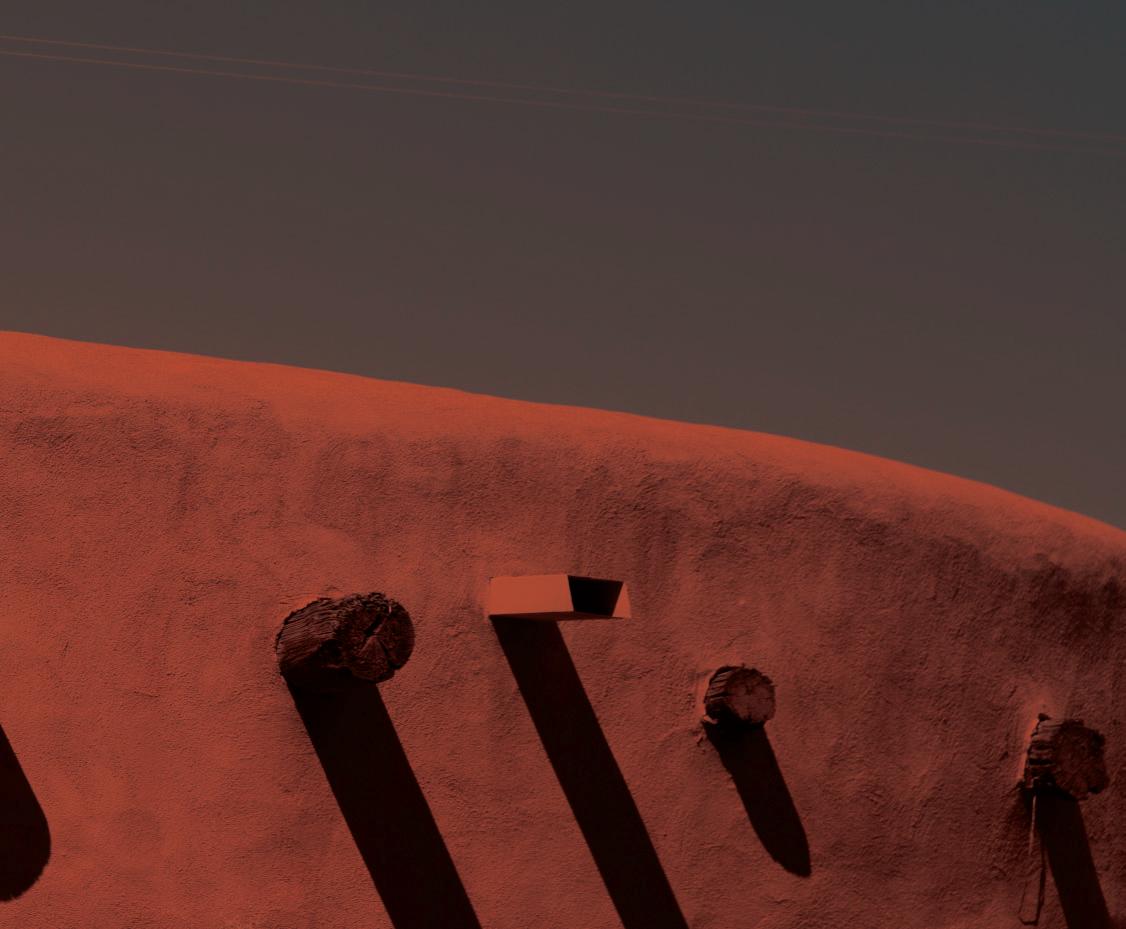

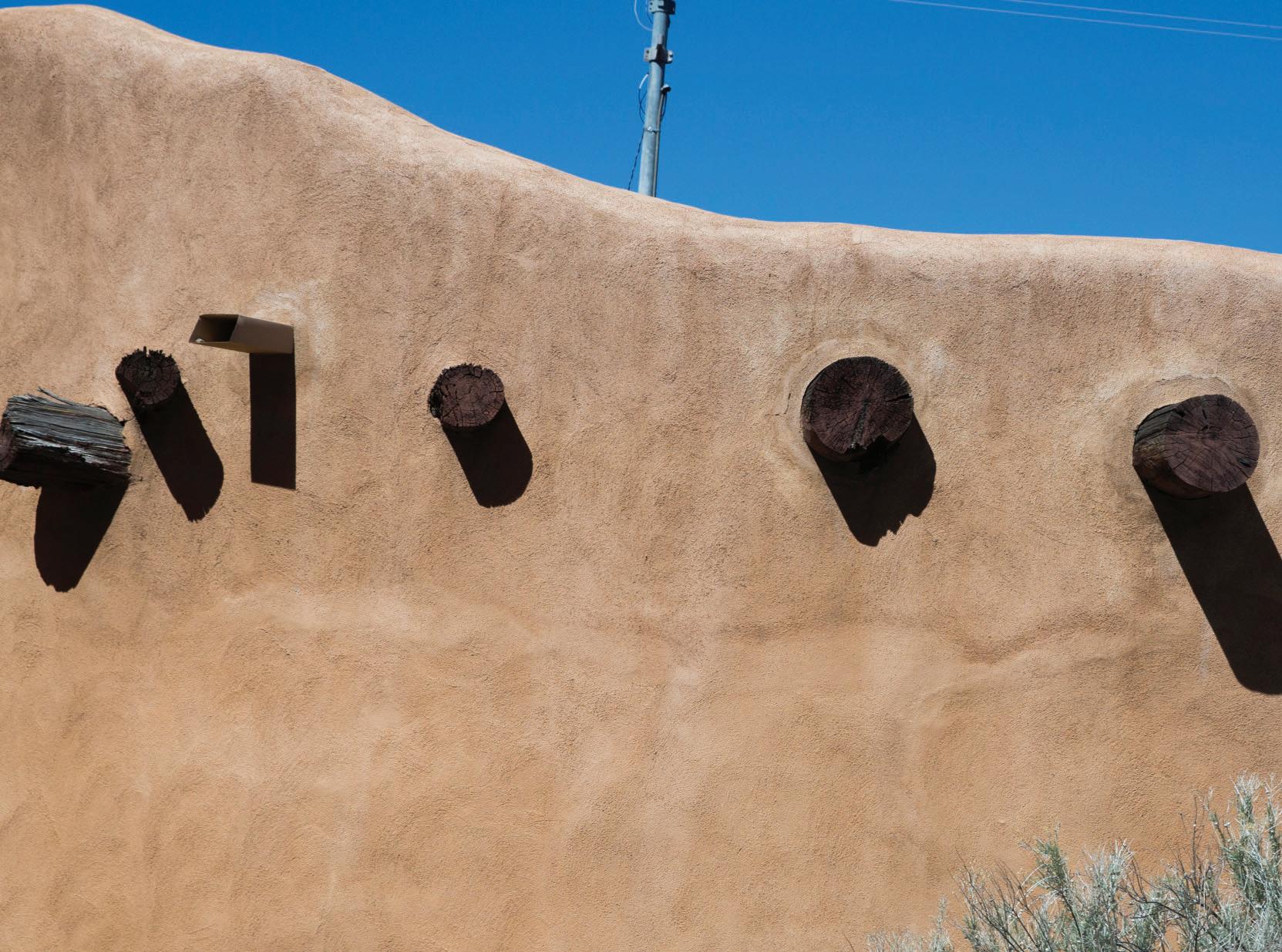

The LAII is sustained and enhanced by the research, teaching, and service of its affiliated faculty across campus. Over one hundred faculty contribute to these efforts and are affiliated with the Institute. To support this broad community, the LAII awards funding for field research, conference travel, course development, interdisciplinary projects, and more.





The LAII annually holds a competition for faculty grants to support beginning field research on new projects or to complete, supplement, or add a comparative dimension to field work conducted previously in Latin America, Spain, or Portugal.
M ARGARET J ACKSON
Art History | Time and Place: Architectural Agency in Moche Murals of Peru
J AMI N ELSON -N UÑEZ


Political Science | Innovation in Multilevel Governance: Peru and the Incentive Program
F RANCISCO U VIÑA -C ONTRERAS
Architecture and Planning | Taller Internacional de Conservación y Restauración de Arquitectura de Tierra, TICRAT: 25 años de compromiso a través de talleres comunitarios
M ARYGOLD W ALSH -D ILLEY
Geography & Environmental Studies | The Political Ecology of Páramo Conversion
T HIAGO DA C OSTA L OPES
Social sciences, international cooperation, and the rural poor: the Inter-American beginnings of community development programs in the Global South (1940)
V ALERIA M ANZANO
The Last Snapshots of the Latin American Revolution: Culture, Politics, and Nostalgia, 1979-1994
J UAN L EAL U GALDE
Images of Death and Political Violence: From Mexican Revolution Postcards to Contemporary Zapatism
M IGUEL C HAN D ZUL
T HOMAS E. C HAVEZ
F RANCINE C RONSHAW
R ICHARD F LINT
S HIRLEY F LINT
R YAN S. H ECHLER
S TANLEY M. H ORDES
L ARRY L ARRICHIO
M ARY L OUISE P RATT
M ILTON M ACHUCA -G ALVEZ
M EREDITH P AXTON
I RMA P OMOL
UNM Latin American & Iberian Institute | 2021-2022 Annual Report
Below are publications from some of our LAII-Affiliated faculty:
B ORDER B ODIES : R AIALIZED S EXUALITY , S EXUAL C APITAL , AND V IOLENCE IN THE N INETEENTH -C ENTURY B ORDERLANDS
Bernadine Marie Hernández, English


Elizabeth Hutchison, History
Edited and translated by Anna M. Nogar (Spanish and Portuguese) and A. Gabriel Meléndez (American Studies)
Suzanne Oakdale, Anthropology
Edited by Katalin Franciska Rac and Lenny A. Ureña Valerio (Latin American and Iberian Institute)
R ETHINKING THE I NKA : C OMMUNITY , L ANDSCAPE AND E MPIRE IN THE S OUTHERN A NDES
Edited by Frances M. Hayashida (Anthropology), Andrés Troncoso and Diego Salazar

The LAII maintains a thriving outreach program that reaches across and beyond UNM. In addition to hosting our own events, we cosponsor a range of programs in partnership with departments and organizations across campus and in the community. Lecture series, invited presentations, conferences and co-sponsored community events (including the Festival Flamenco (with the National Institute of Flamenco) and Cine Magnífico (with the Instituto Cervantes) all contribute to dynamic learning and cultural experiences at UNM and in Albuquerque. Recordings of sponsored lectures and workshops are posted to our YouTube channel and are available worldwide.




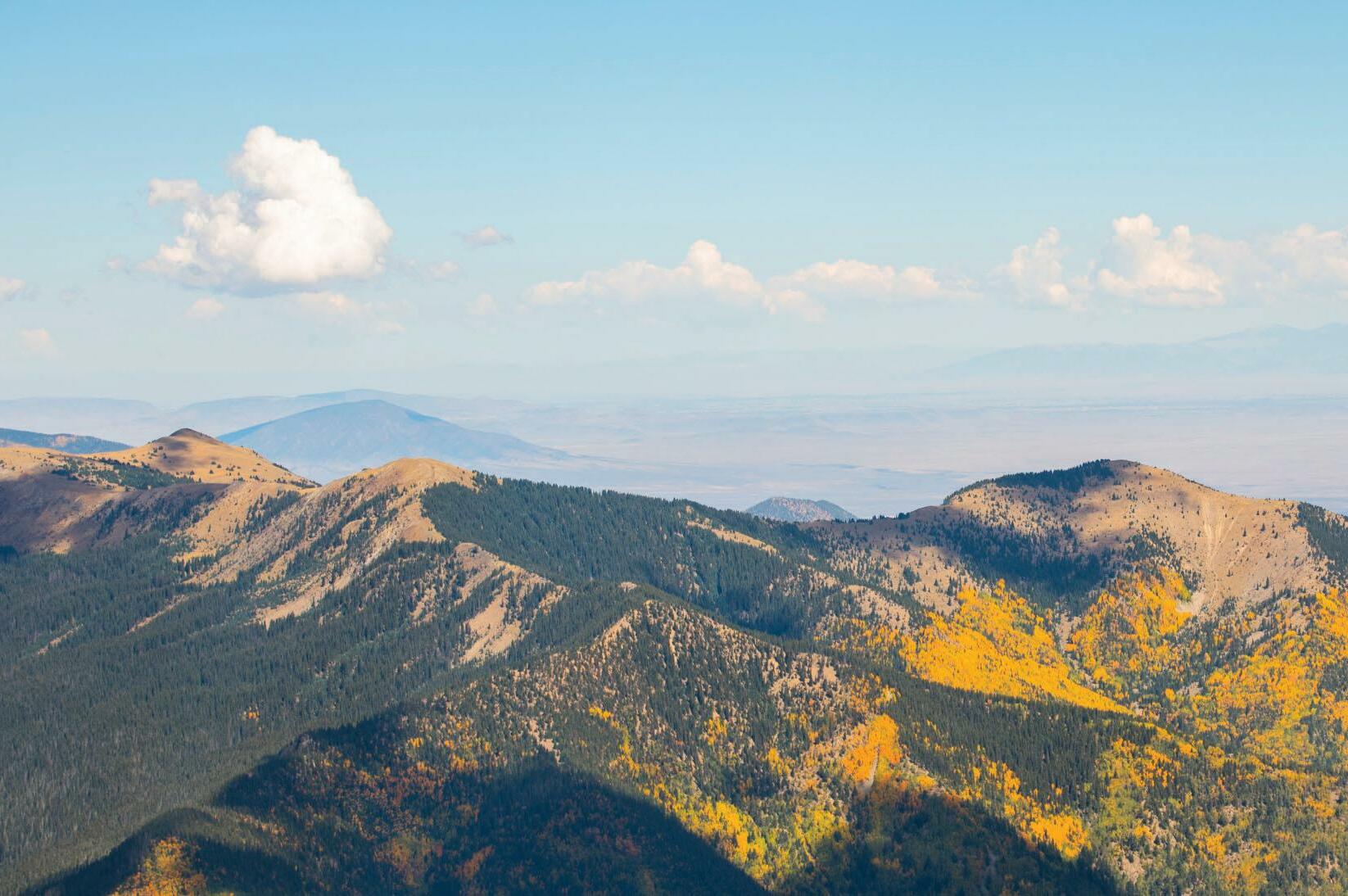


• Gothic Imagination in Latin American Fiction and Film - Carmen Serrano
• Press, Power, and Culture in Imperial Brazil - Hendrik Kraay, Celso Thomas Castilho, Teresa Cribelli
• The Conquest of the Desert: Argentina’s Indigenous Peoples and the Battle for History - Carrie Larson




• Gender, Power and Violence: Conflict-Related Sexual Violence Prosecutions in Bosnia and Herzegovina - Ajla Skribc
• Pious Imperialism: Spanish Rule and the Cult of Saints in Mexico City - Cory Conover
The LAII provides outreach to K-12 educators and students in order to enhance and expand understanding of Latin American cultures and languages across grade levels and content areas. This outreach takes the form of:
• Professional development workshops, developed in partnership with other local and national organizations as well as with LAII-affiliated faculty
• Vamos a leer, our blog focused on culturally-responsive children’s literature relating to Latin America
• Free curricular resources



• Local lending resources, including our classroom book sets
• Youth events
• Teacher Advisory Committee
To help build global competencies among students, the LAII offers free professional development opportunities and develops curricula related to Latin America. Beyond just teaching about Latin America, the LAII’s K-12 programs emphasize providing culturally relevant content to students in New Mexico and across the United States. In this way, we also work to bridge the gap between K-12 education and academia.
In a state in which Spanish is an official language, many residents come from Latin American backgrounds, and the state’s own history is informed by a long legacy of exchange with the broader Americas, rich and culturally appropriate content is critical to ensuring that New Mexico students are able to see themselves in the materials they study.
The ongoing COVID-19 pandemic was, and continues to be, a challenging time for educators and students. Because of this, the LAII pivoted to virtual programing and providing even more classroom- (including virtual- and hybrid-) ready resources. An unexpected result of this challenge was the ability to reach educators and students beyond New Mexico. Since our virtual programming began, we have reached teachers in several states outside of New Mexico.
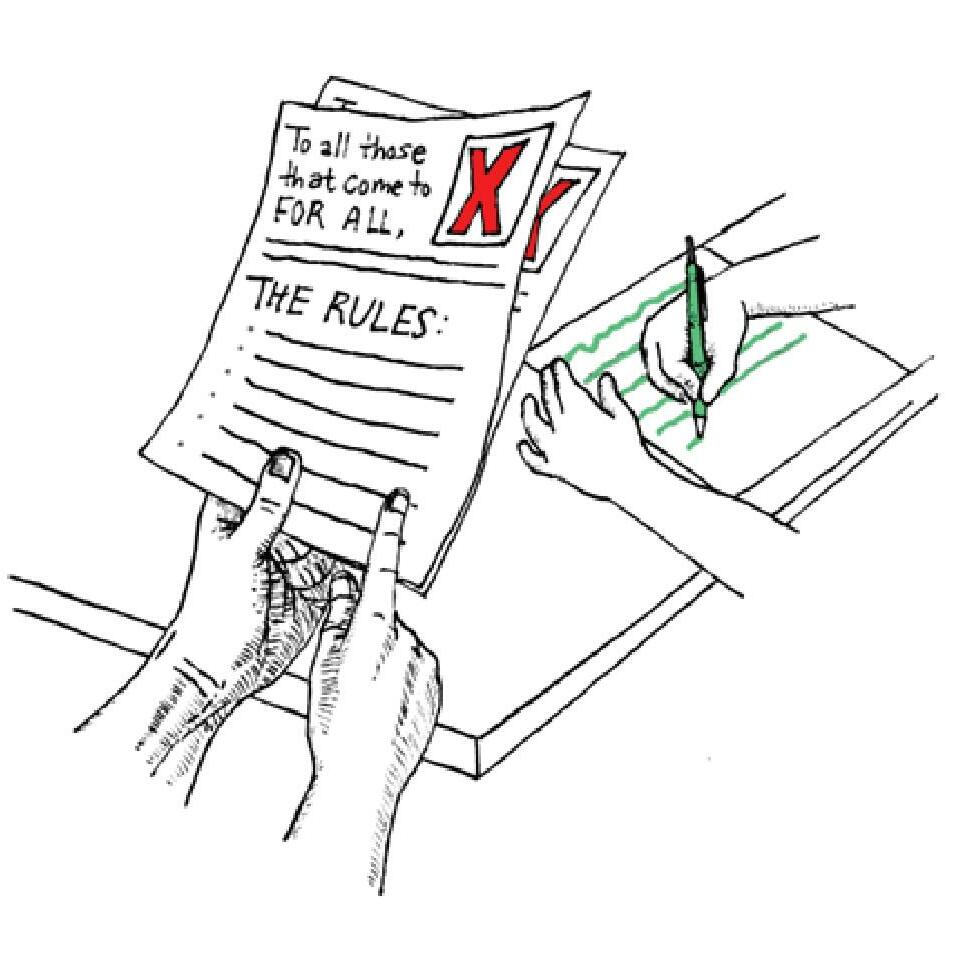
In October 2021, we hosted a free professional development to explore how to teach immigration and activism in the K-12 classroom. We were joined by Alejandra Domenzain, author of For All/Para Todos.
As part of this series, the LAII also participated in a panel discussion/workshop organized by UnidosUS, a civil rights and advocacy organization. The event presented curriculums and best practices for integrating social justice from the LAII and UnidosUS Affiliate, Cesar Chavez Foundation, in a conversation moderated by Alejandra Domenzain.
In February 2022, we hosted a free professional development to explore how to incorporate and teach sounds in the K-12 classroom. We are especially grateful to Dr. Ana Alonso Minutti, who presented a workshop entitled “Living and Learning through Sound: Developing a Sonic Epistemology” as part of this broader workshop entitled “Incorporating Global and Latin American Sounds into the Classroom”
Drawing from her recent fieldwork in Costa Rica, Dr. Ana Alonso Minutti addressed ways in which artists and scientists associated with the Universidad de Costa Rica, in conjunction with local activists, have developed the workbook ¡Escuchá conmigo! (2021), an invitation for kids and young adults to engage in an exercise of listening through the body to connect with nature. Having grown up in Mexico, she addressed a similar project developed in her home country, Suena Mexico (2016), an illustrated book that tells a story using the yells and calls of street public services (el gas, la basura, tamales, etc.). Taking these two book projects as case examples, she proposed ways in which teachers and students can think through sound and engage in creative exercises to promote human and nonhuman connections. An active hiker, Ana introduced the practice of soundwalking as yet another way of developing a sonic epistemology. By sharing her recent experience walking over 80 kms of El Camino de Santiago (Spain), she proposed doing soundwalks to create harmony between body, mind, and soul by listening through walking. Lastly, drawing from her time living in Albuquerque for the past eight years, Ana addressed the ways in which the unique New Mexican soundscape has been a catalyst for her research, teaching, and composing.

Following Ana’s presentation, participants further explored how to incorporate sound into their classroom teaching. What does the world sound like? What does Latin America sound like? How is sound a form of resistance and sovereignty? The resources provided are applicable across grade levels, languages, and subject areas. An educator book guide on Hungry Listening (2020) was also provided and discussed.

In March 2022, we hosted a free professional development workshop to explore how climate change impacts Latin American Indigenous communities, such as the Yaqui, Maya, and Wixárika, through the documentary film La Vocera, directed by Luciana Kaplan.
We were also very lucky to be joined by 350 New Mexico’s Nancy Weeks Singham and Stefi Weisburd for this workshop. Addressing the need to support local teachers in climate education, and recognizing the importance of youth voices on this issue, they are developing a climate change curriculum to help educate and activate middle school students. In this workshop, Nancy and Stefi introduced the outline of their 4-day middle school “Climate Hope: From Knowledge to Action” pilot unit and point to a few other ways your students can engage in climate action.
Learn more at https://350newmexico.org, noting “Teaching Climate Change” resources.
The curricular unit developed by the LAII focuses on a broader collective resistance of Indigenous peoples in Latin America and their leadership in the fight for climate justice. The resources presented include an entire unit on the documentary La Vocera, and two additional lesson plans - one of which encourages students to create their own documentary on climate justice and resiliency in their own communities.


In April 2022, we hosted a free professional development workshop for educators to explore the United Nations Framework Convention on Climate Change Convention of Parties (COP26).
We were very excited to be joined by Dr. Andreas Hernandez, who conducted a presentation during the first half of the workshop. Dr. Hernandez’ research, filmmaking and teaching examines just transitions to sustainability and regeneration. His focus is on social movements and ecovillages in Brazil, and their construction of agroecological systems and emergent politics and worldviews. He also examines how social movement activity can be translated and implemented into social policy and may engage with the United Nations System.
In this presentation, Dr. Hernandez provided a background on the United Nations System, its history, and its global role. He also provided an overview of the Paris Agreement. Combined, this presentation provided educators with the background needed to engage with this topic in the classroom.
Following the presentation by Dr. Hernandez, the workshop presented opportunities for educators to apply the knowledge learned in the context of teaching COP26, and allied Indigenous climate activism, in the classroom.
These included activities that explain the COP (What is it? What happened? Why is it important?) and a stimulated conference/debate activity mirroring the COP process. Additionally, a media literacy lesson plan was presented which prepares students to critically analyze content featured in the media, focusing on COP26 and Indigenous climate activism.
This workshop connects to the broader theme of the spring 2022 semester by centering Indigenous voices, experiences, power, and activism as it pertains to climate justice. It provides educators with pertinent resources to approach the topic of COP26 which have the potential to stimulate students to think about climate globally and realize their potential to protect our planet.
Twice a year the LAII’s Teacher Advisory Committee, composed of pre-service educators and in-service educators from private, public and charter schools across New Mexico and the United States advises the development of our K-12 programs. With their input, the programs have continued to grow and expand, reaching ever greater numbers of educators, students, their families, and their communities. We would like to thank the following educators who joined us for the fall 2022 council session:
• Cynthia Jackson
• Teresa Drenten
• Gina Gonzalez-Young


• Claudia Reyes
• Silvina Farmin
• Mary Beth Howe
• Monica Nuñez
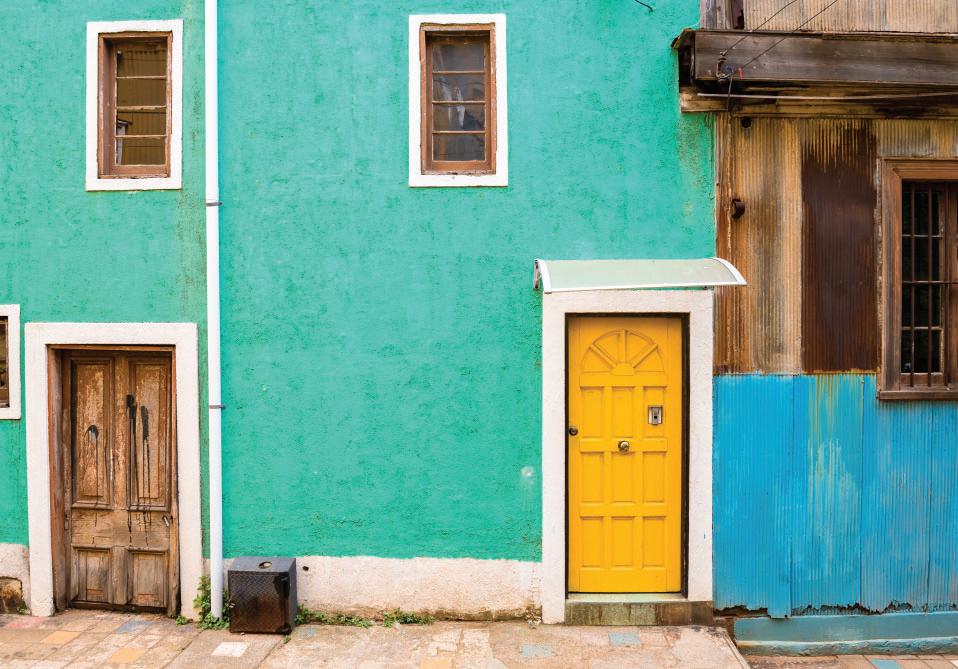
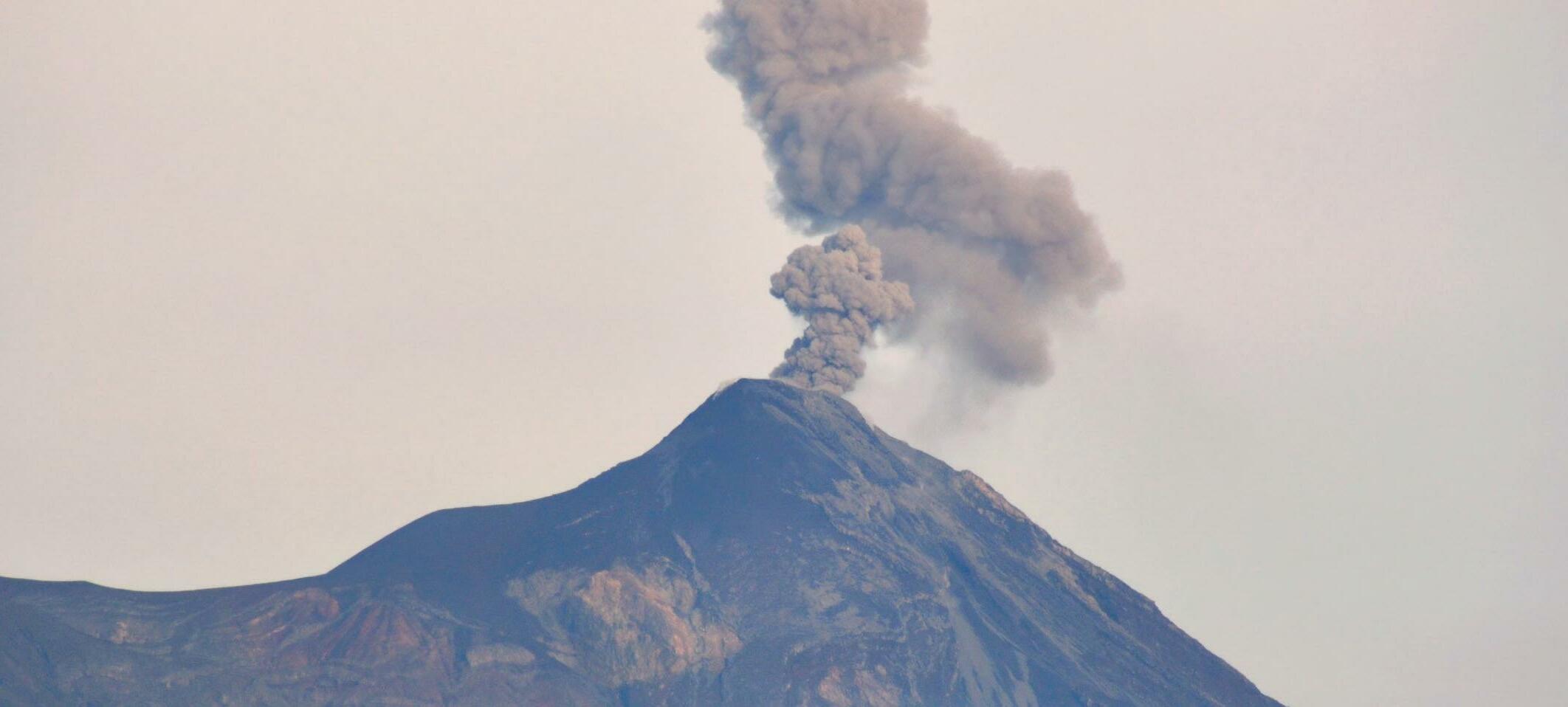


The LAII functions as a network of faculty, students, independent scholars, K-12 educators, and community members. Our programs sustain this network and benefit from it, contributing to UNM’s rich environment for the study and teaching of Latin America and Iberia. These diverse affiliates regularly come together to share approaches to understanding the region.
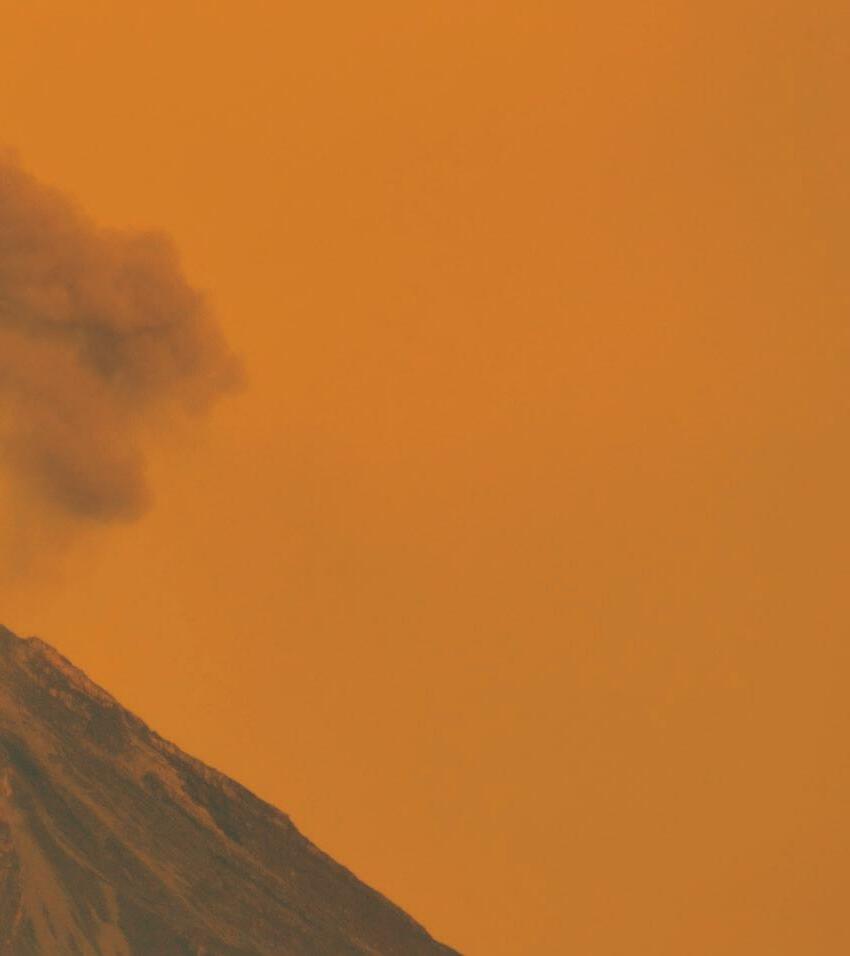






The LAII draws together a diverse community of affiliated faculty from across campus who comprise our Faculty Concilium. To ensure disciplinary representation in our programs, awards, and events, we have four faculty committees that provide guidance:
• Executive Committee
• Grants and Awards Committee

• Operations Committee
• Interdisciplinary Committee on Latin American Studies (ICLAS)
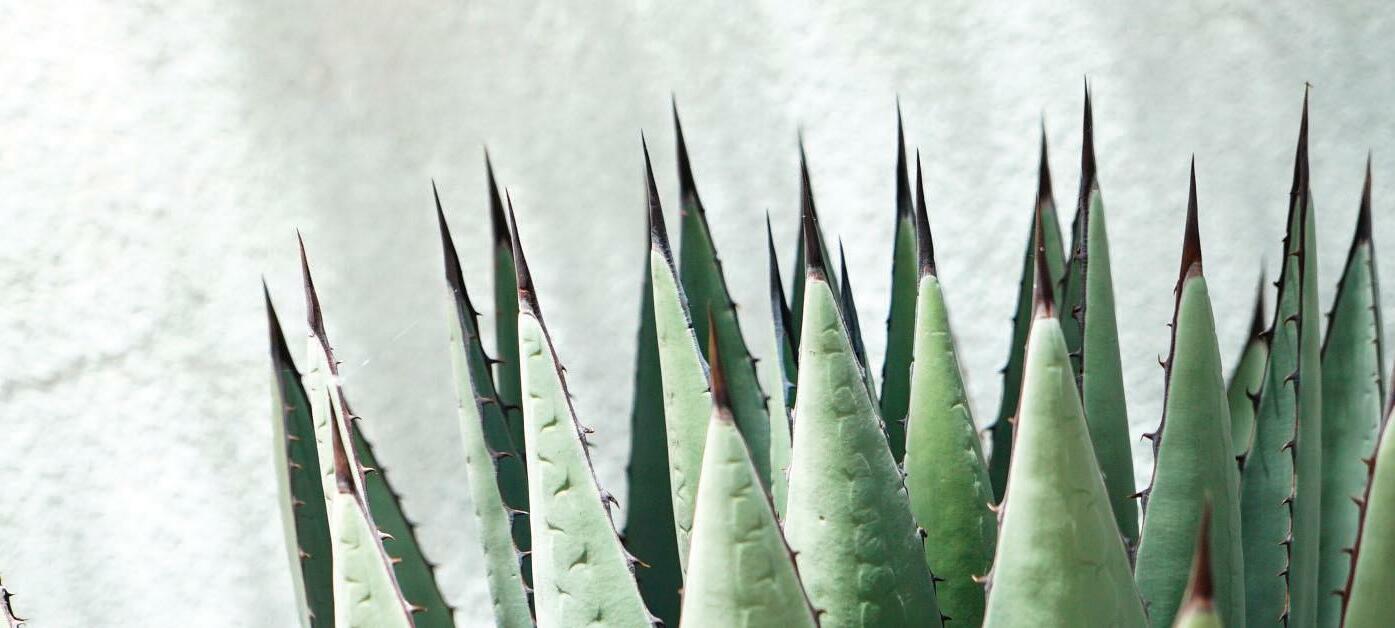
The collective advice gathered through the committees is put into action by professional staff who carry out the day-today operations of the Institute.

Frances Hayashida

Director

Ronda Brulotte
Associate Director for Program Development
Kathryn McKnight
Associate Director for Academic Programs
Marleen Linares-Gonzalez
Communication & Outreach Specialist
Mary “Emmy” Tither K-12 Education Program Coordinator
Jason Farmer Unit Administrator
A big “thank you” to the graduate assistants and teaching assistants for their contributions in 2021-22 to the LAII and our partners:
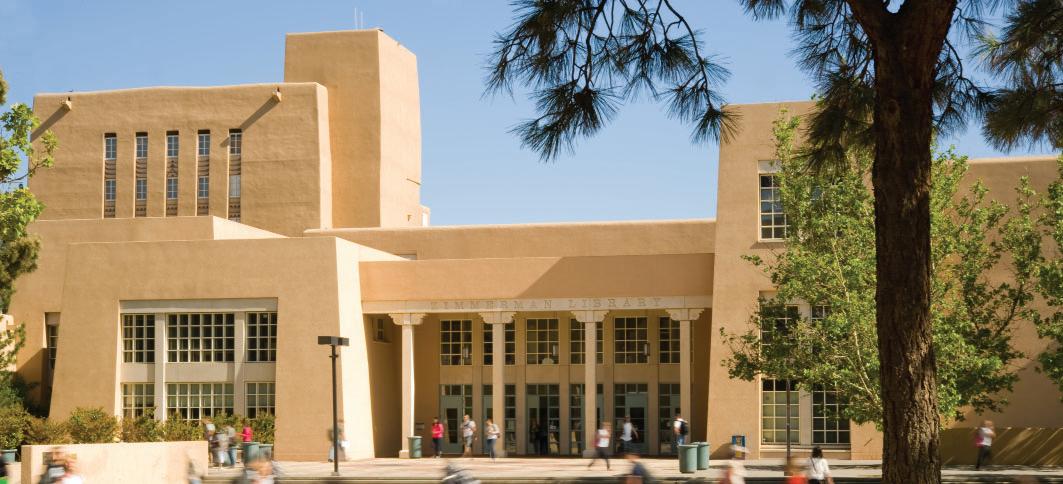
Pablo Arias-Benavides
Robert Donnelly
Jasmine Morse
Miles Nowlin
Soledad Roybal
Whitney Wagner
Dominic Baca
Joselin Castillo
David Juárez Dávila
Alexandra Rivas
Kelsey Varisco
Miguel Sabol
Alejandra Acuña Balbuena
Whether the LAII helped you finish your dissertation, launch your career trajectory, conduct research, or simply strengthen your interest in Latin America and Iberia, we value our alumni and friends and want to continue to support future students and educational and cultural events.
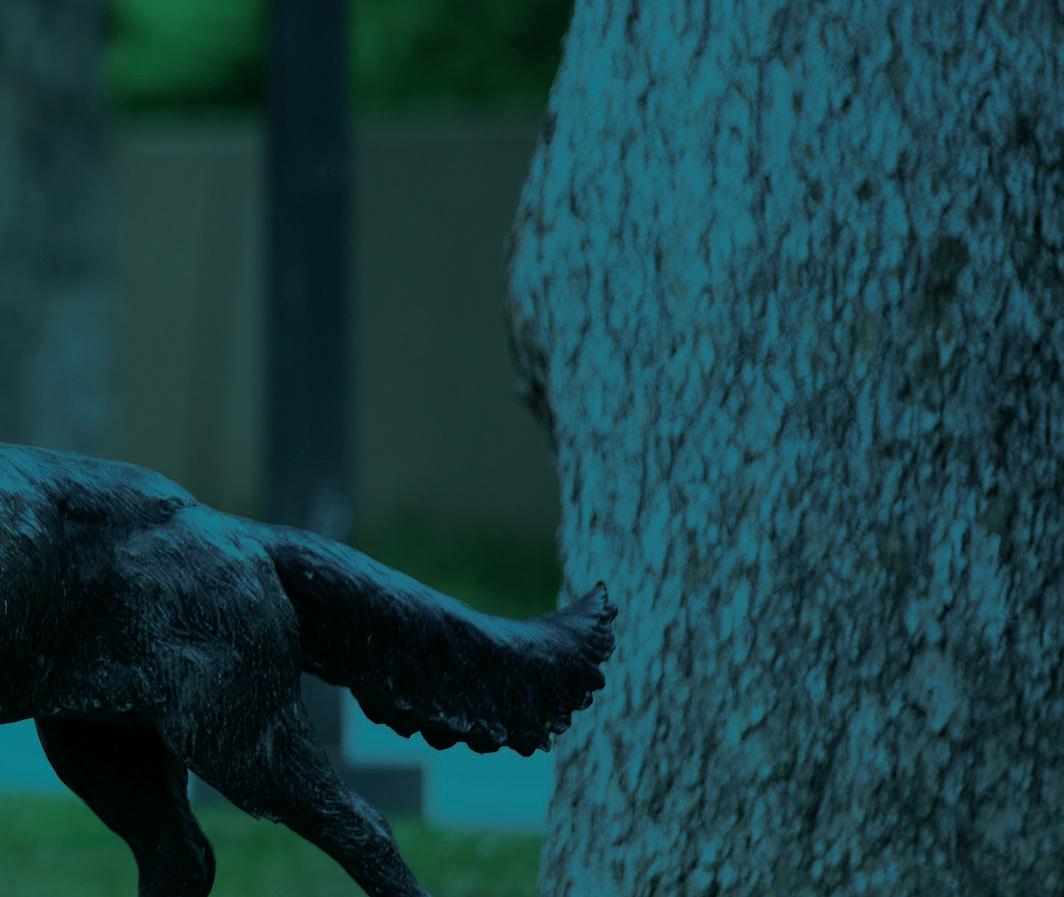

To learn more about our funds and to donate, visit laii. unm.edu/give-now.html or contact the LAII director, Frances Hayashida, at fmh@unm.edu.







The University of New Mexico Latin American & Iberian Institute LAII.UNM.EDU

